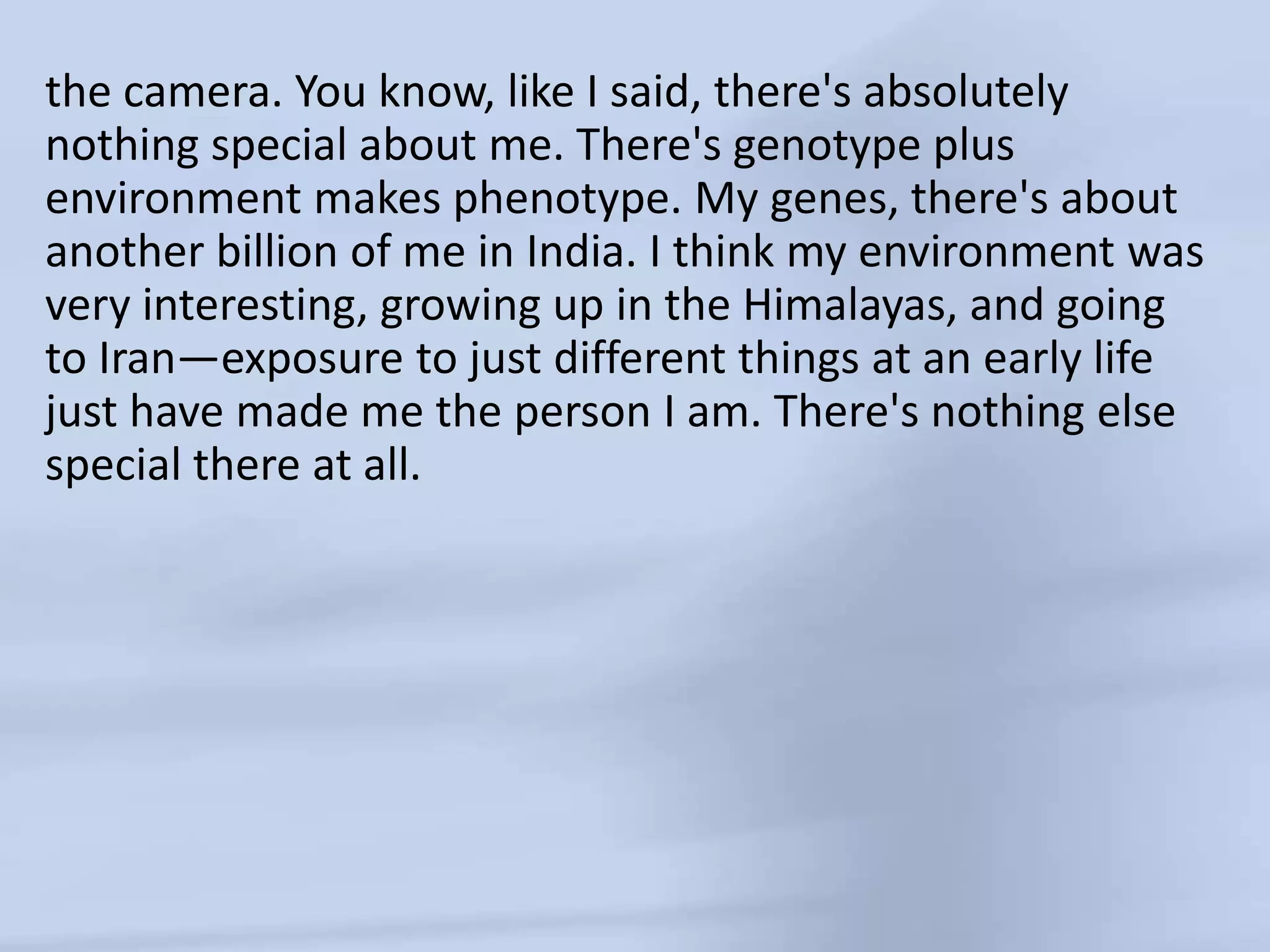Tarsem directed the film The Fall, which was shot over 6 years in 24 countries. It centers on a paraplegic man telling a fantasy story to a hospitalized child. To maintain realism for the child actress, Tarsem pretended the actor playing the paraplegic man was actually paralyzed, not telling crew members or actors he could walk. Much of the film was unscripted, allowing the child to determine the story's progression naturally through improvisation. Tarsem utilized commercial work to fund location shooting for the film by choosing jobs that took him to desired locations.

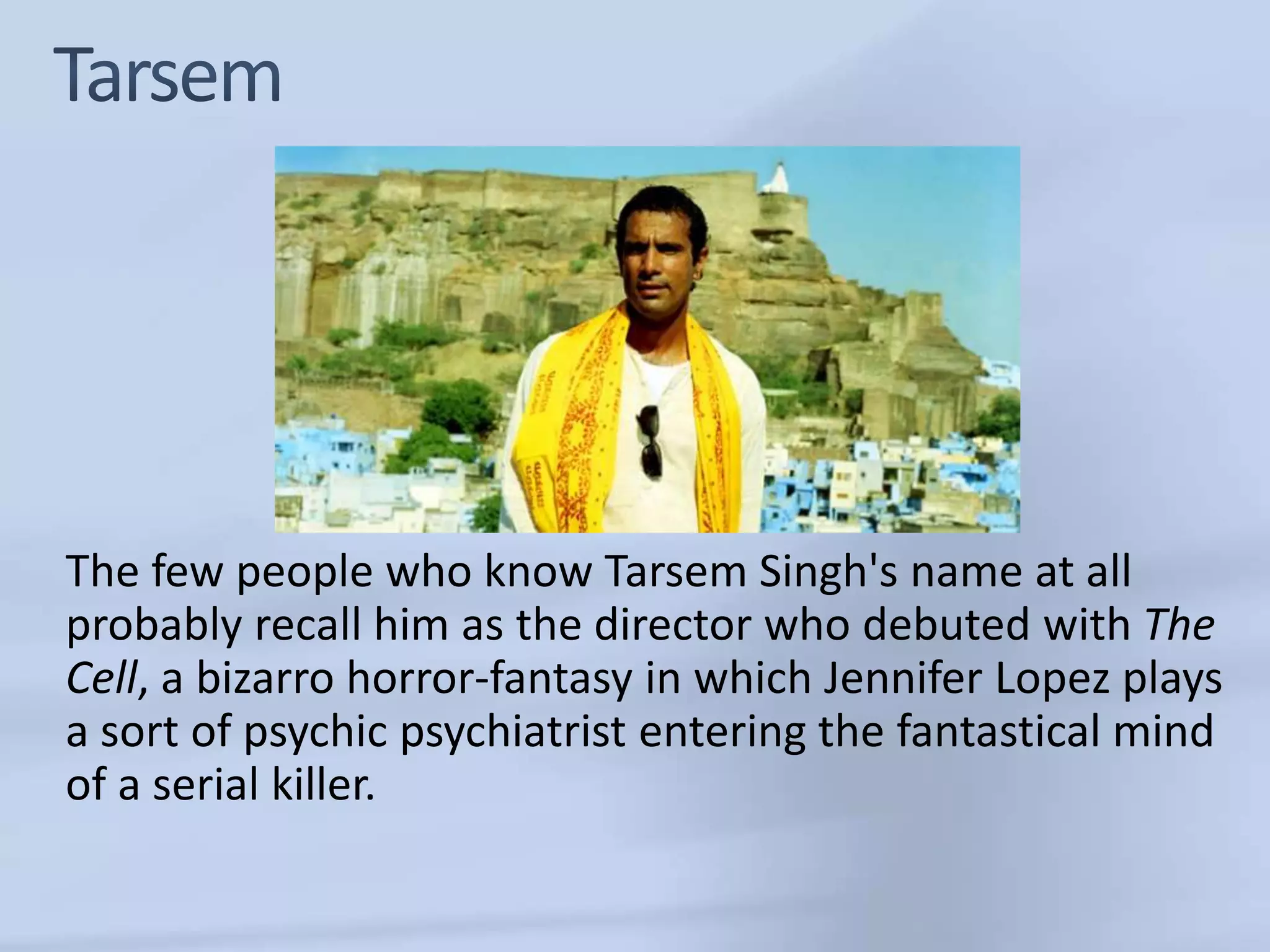
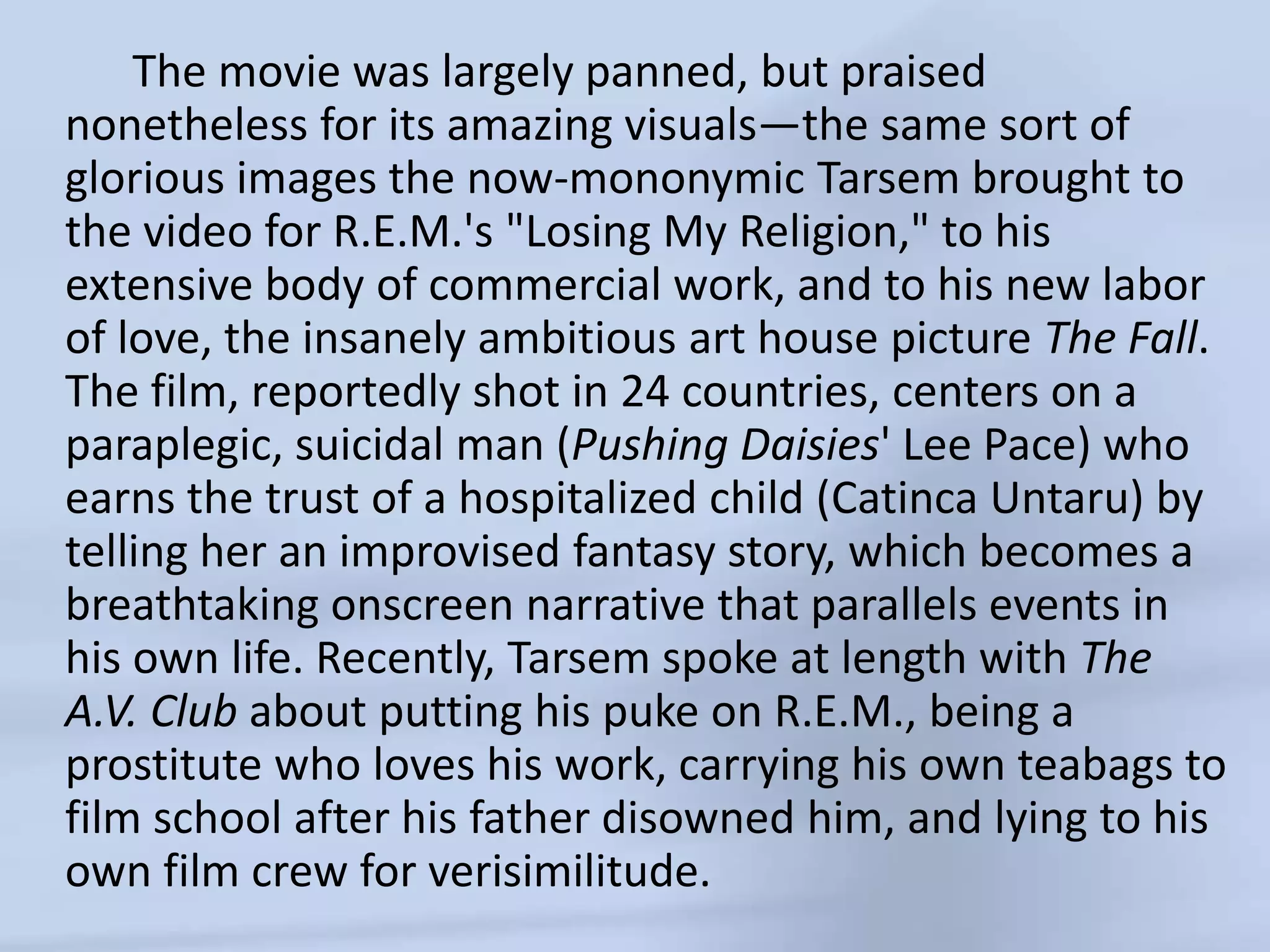
![The Fall screened in Toronto in 2005, but it's only now making it into theaters. Was it difficult getting distribution?It's been almost exactly a year and a half, true. In Toronto, I ran into—at the time, I hadn't finished all the titles for the film. It made a big difference when those two people's names weren't in front: "Presented by [David] Fincher and Spike [Jonze]." And suddenly, there were a lot of people sharpening knives to say, "The guy who made The Cell is making something like this?" Some people thought it was the best thing since sliced bread, and some people thought it was absolute shit. And I thought, "That's great! Exactly what I intended to make." But it's quite a bit more polarizing than I thought it would be. And the stuff from Variety completely killed it.](https://image.slidesharecdn.com/thefall-110503092256-phpapp01/75/The-fall-4-2048.jpg)
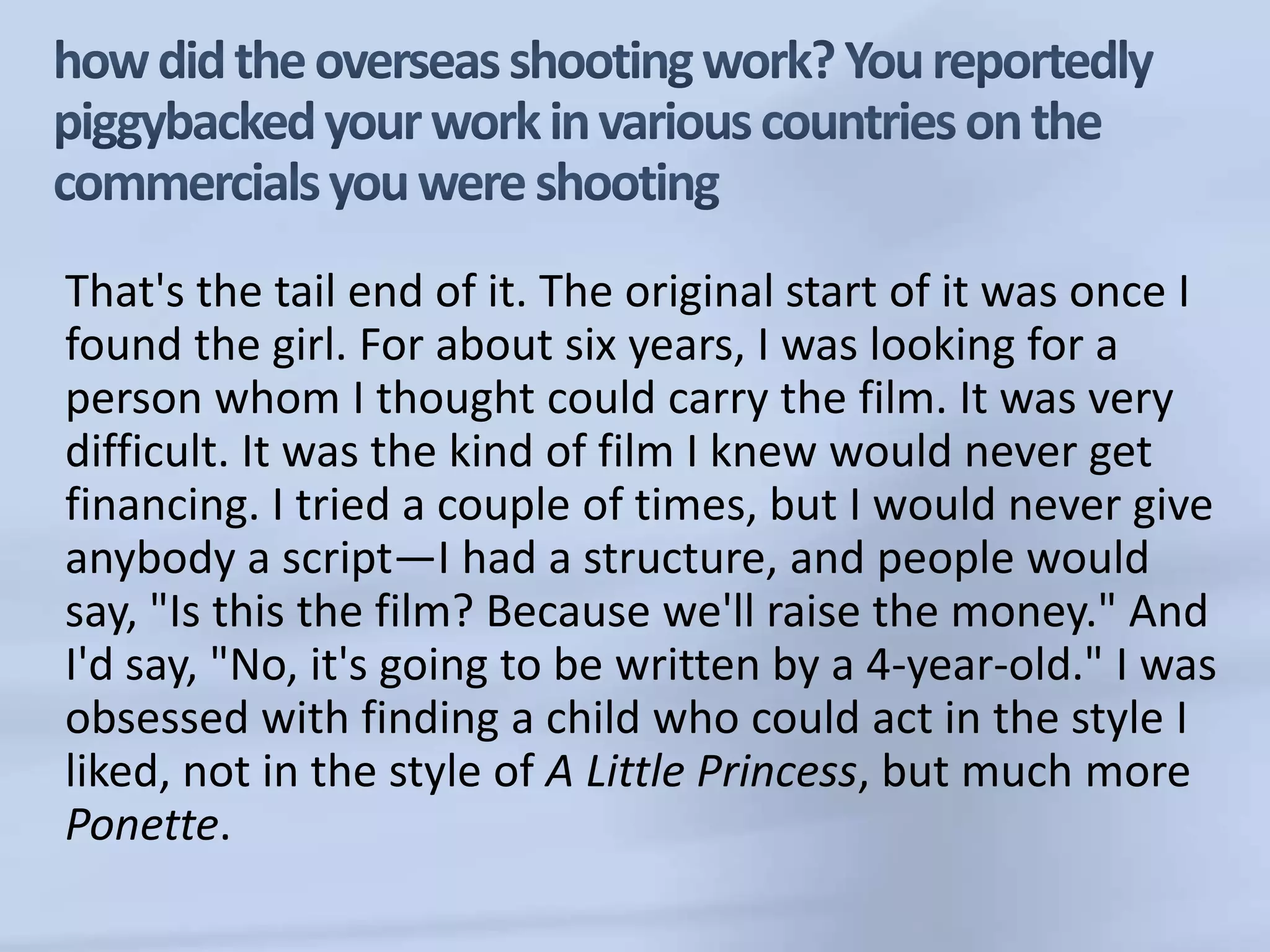
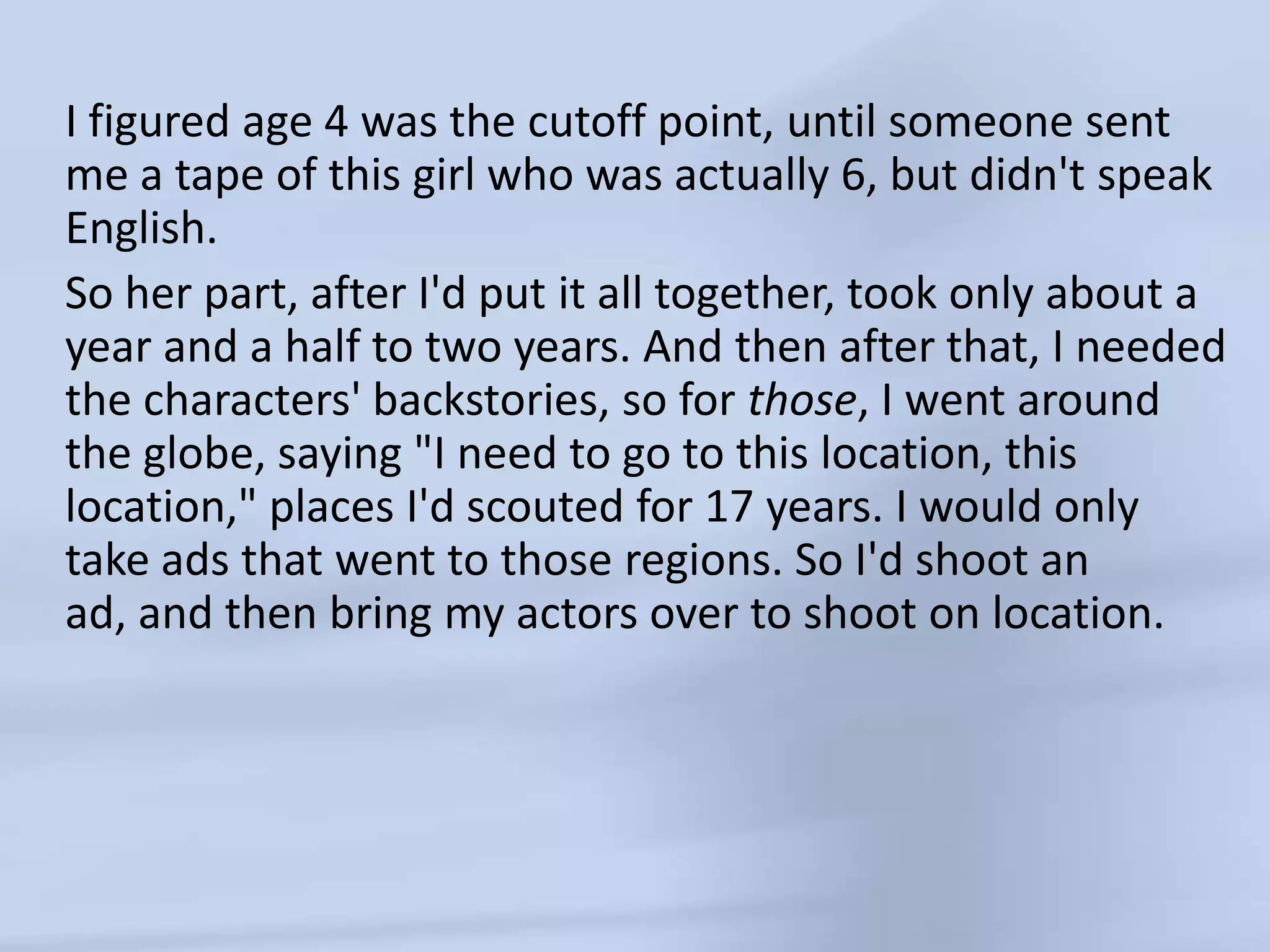
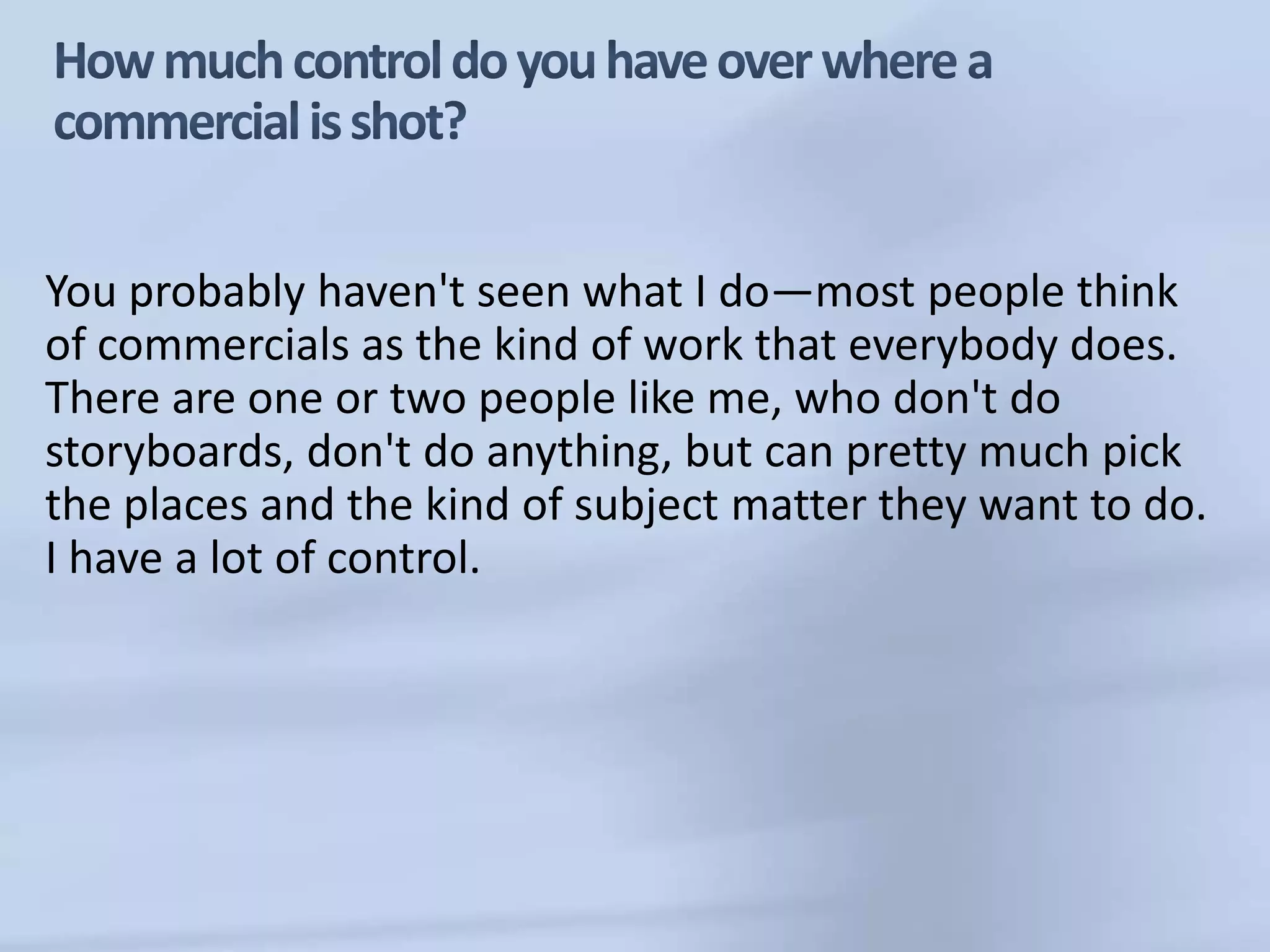
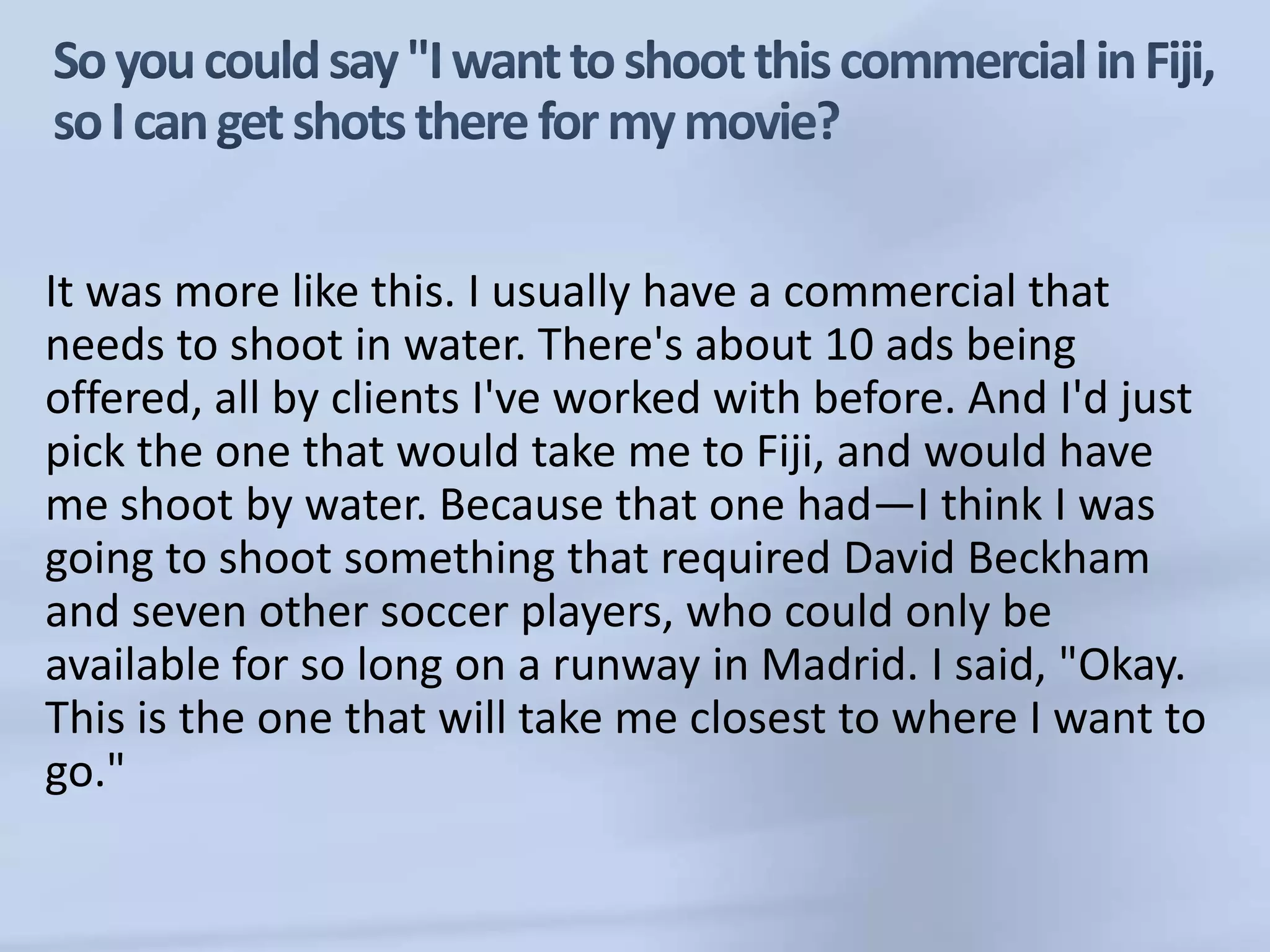
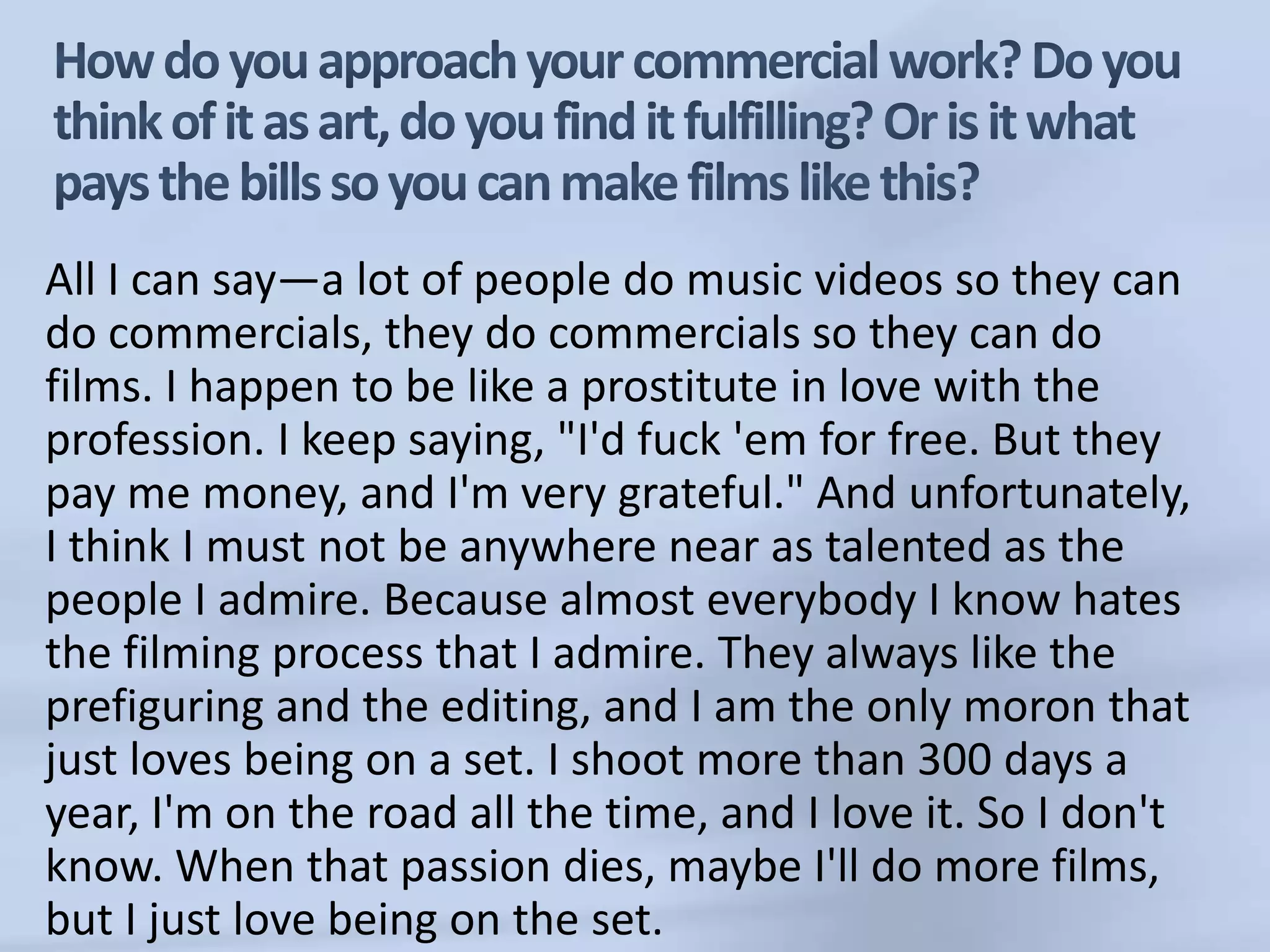
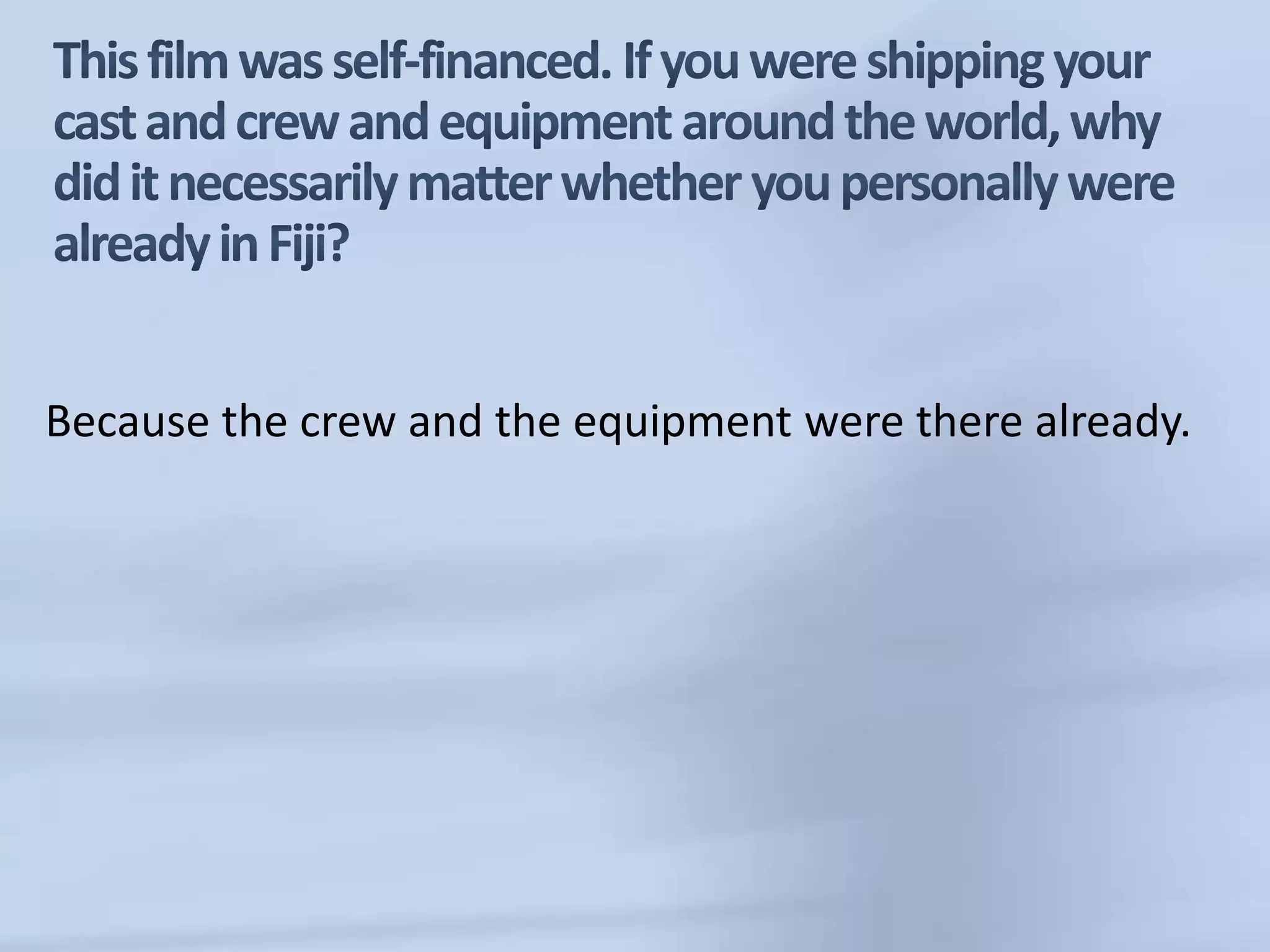
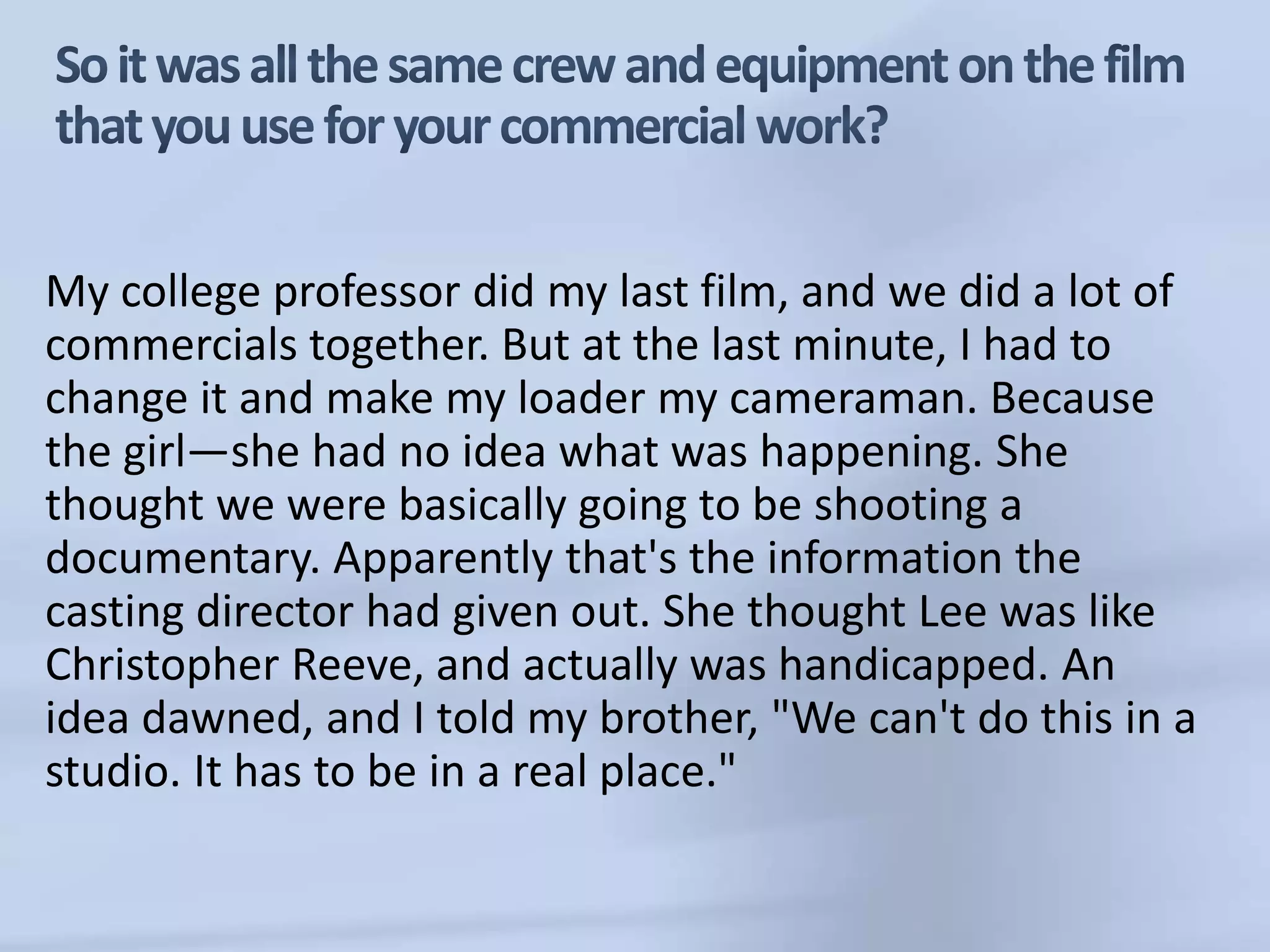
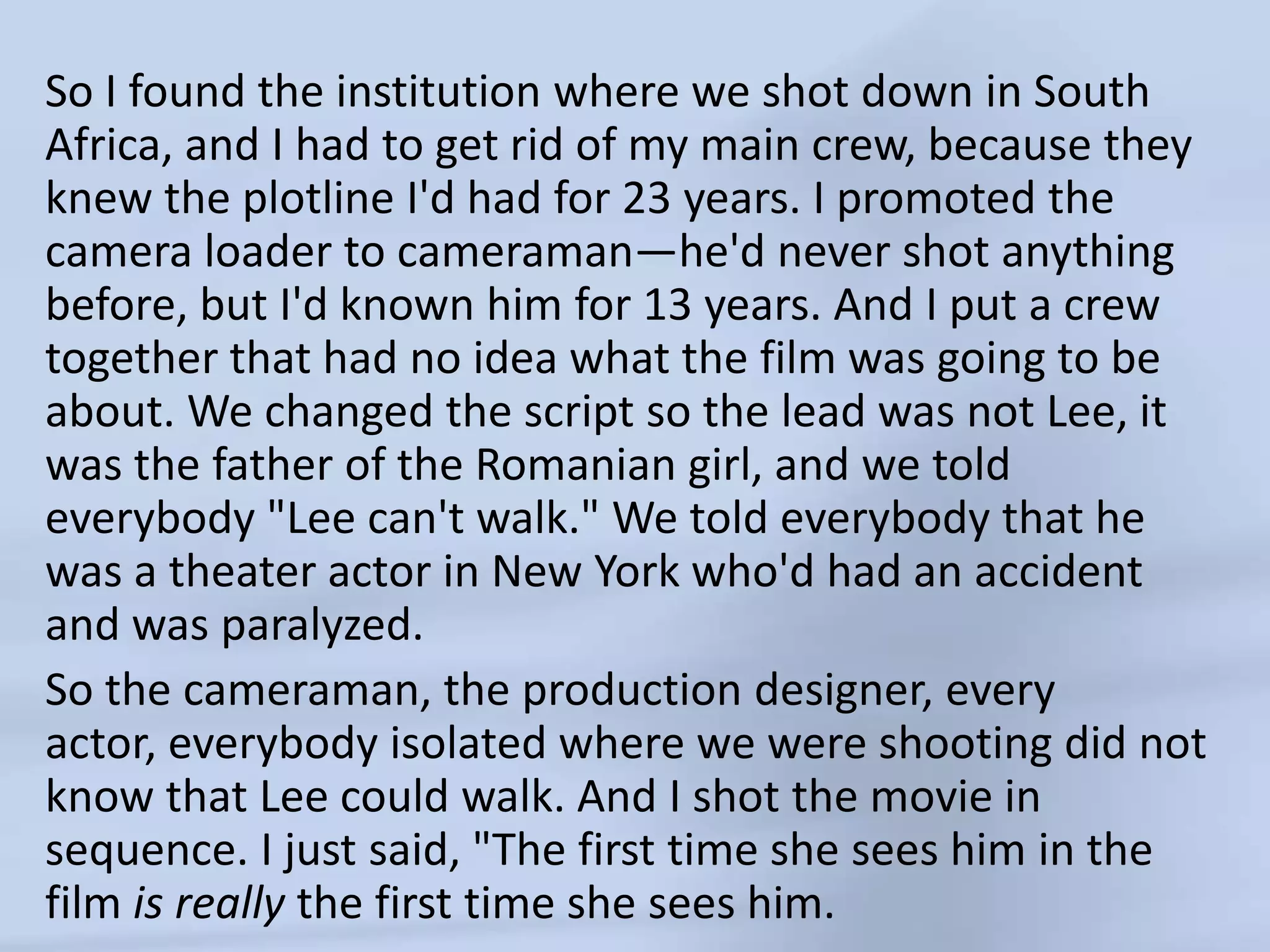
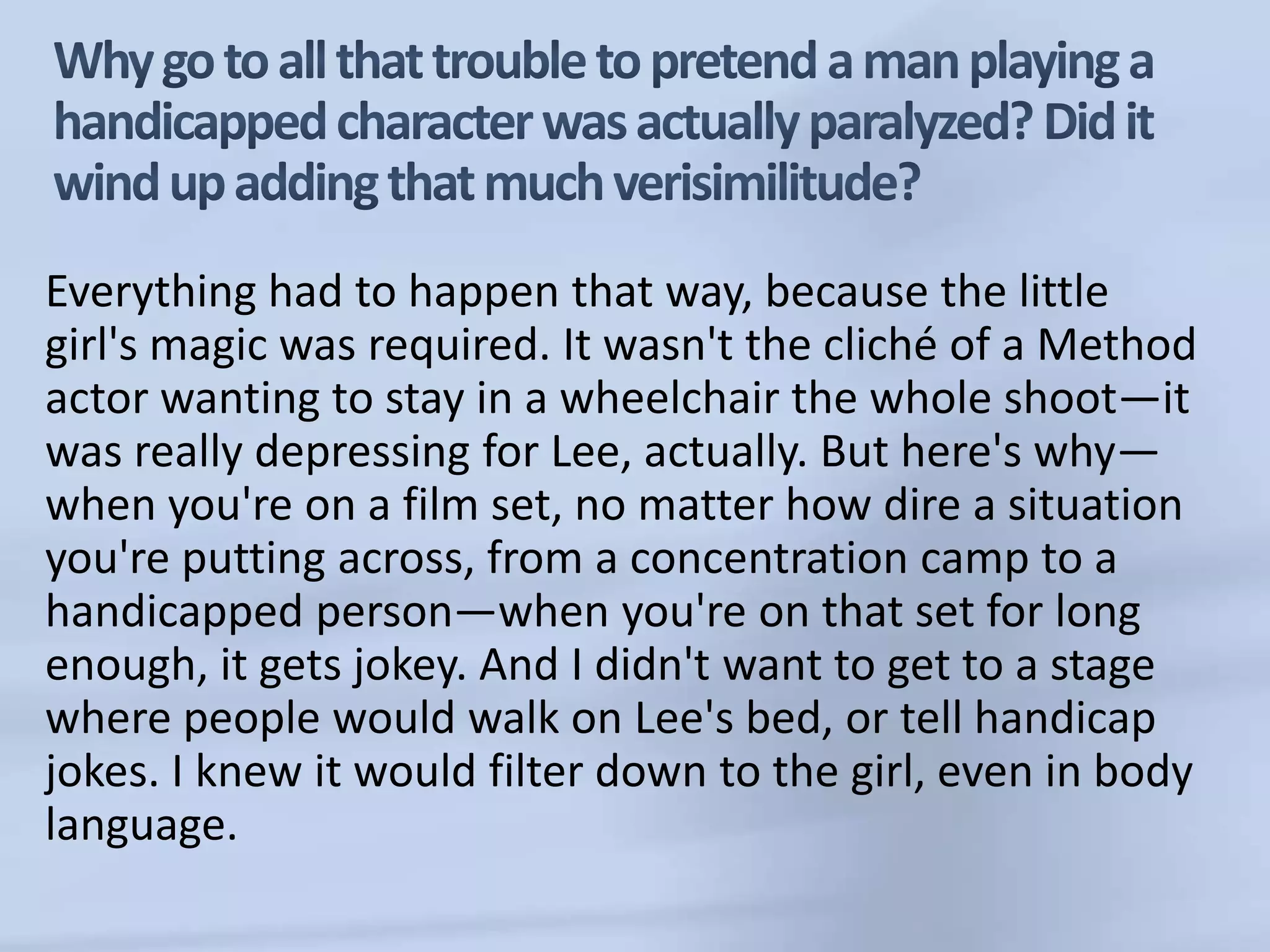
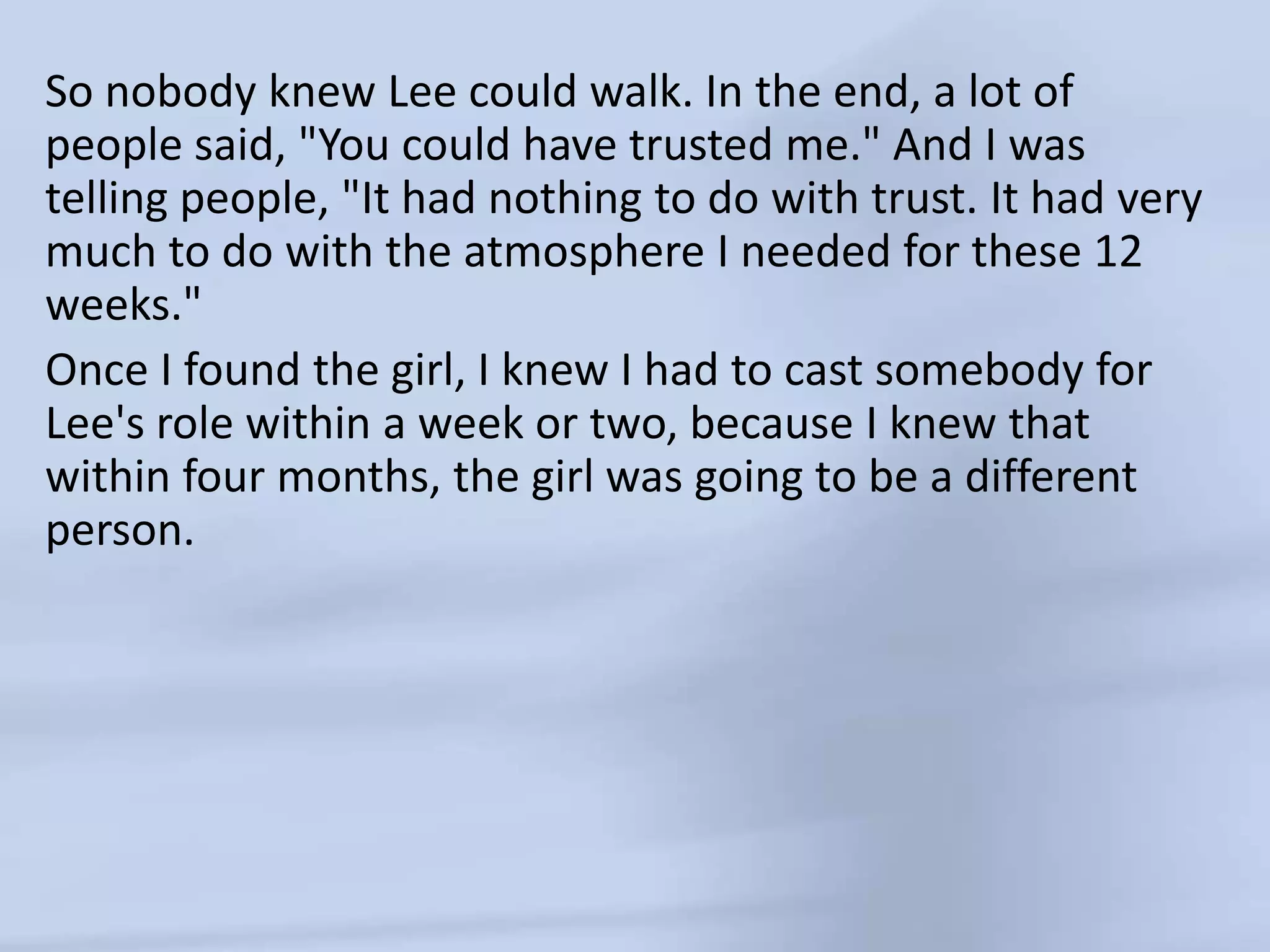
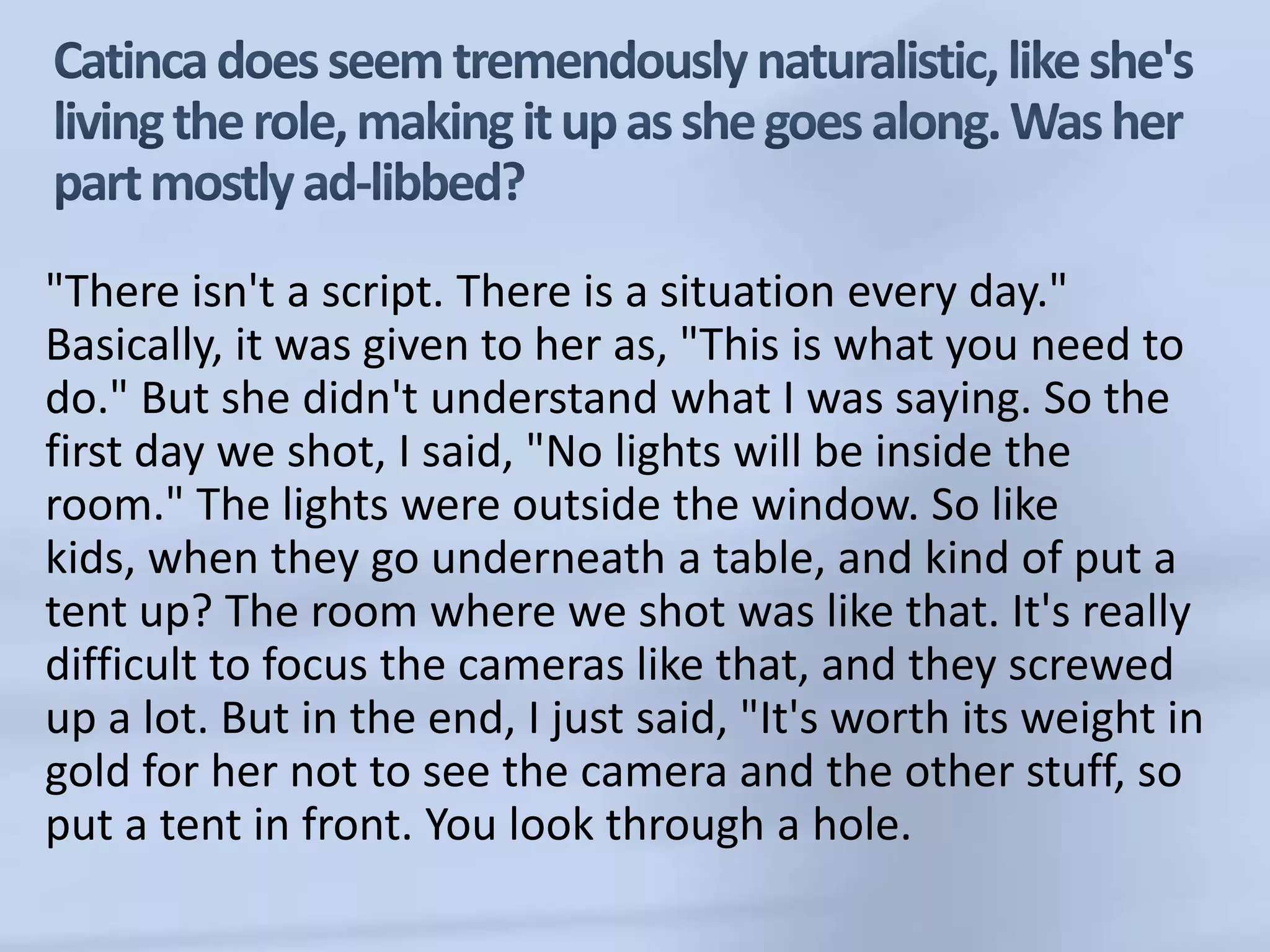
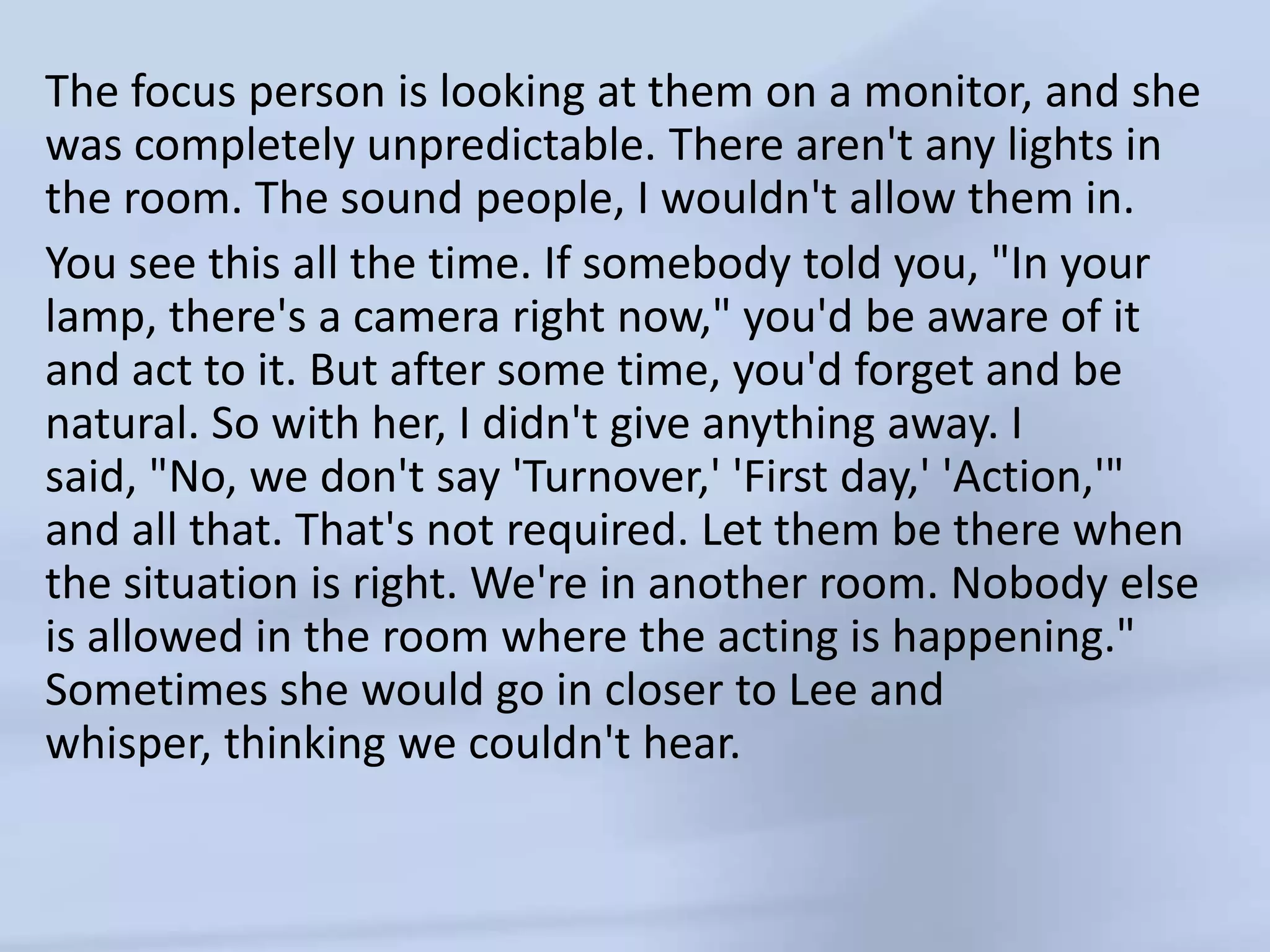
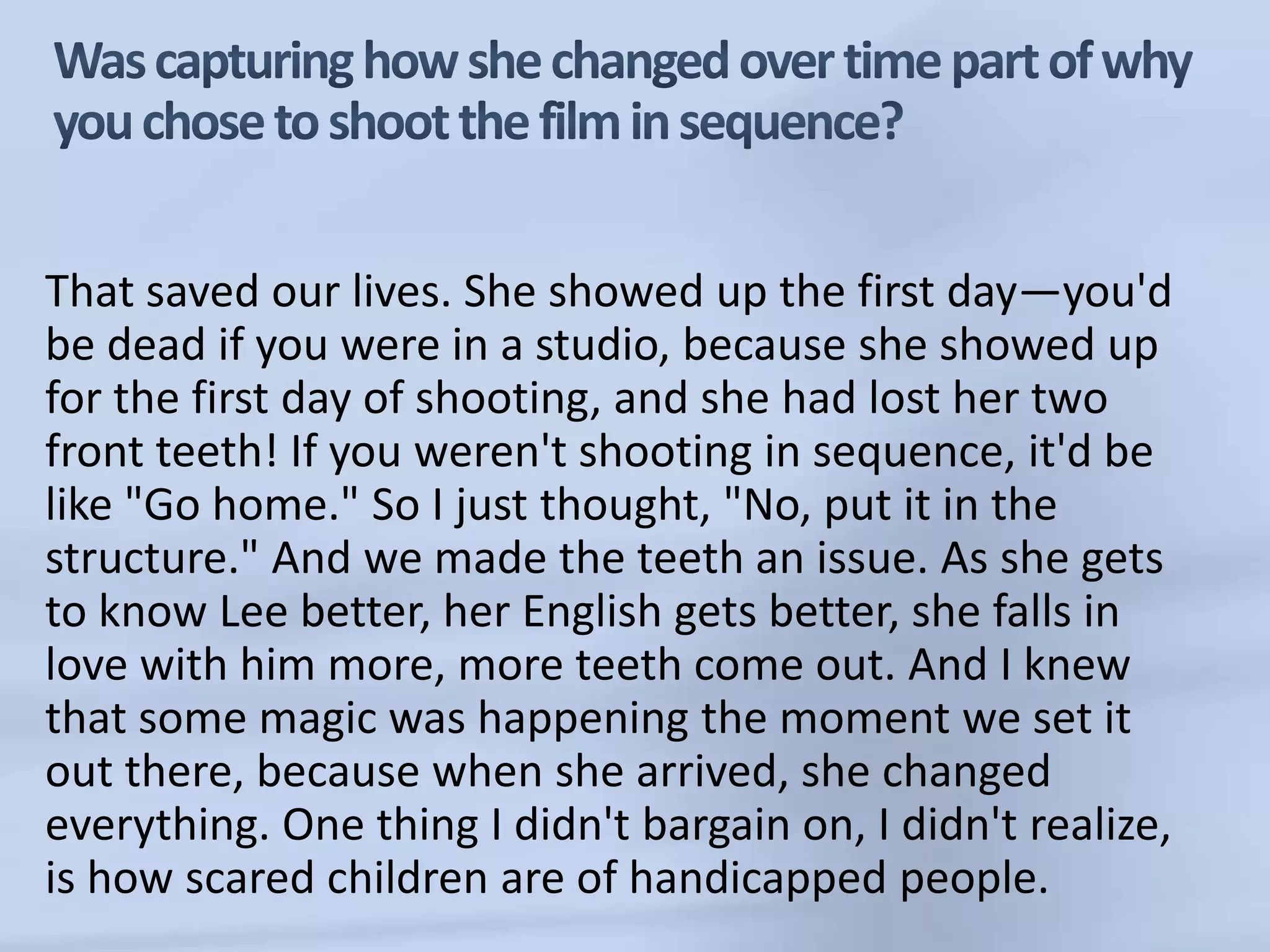
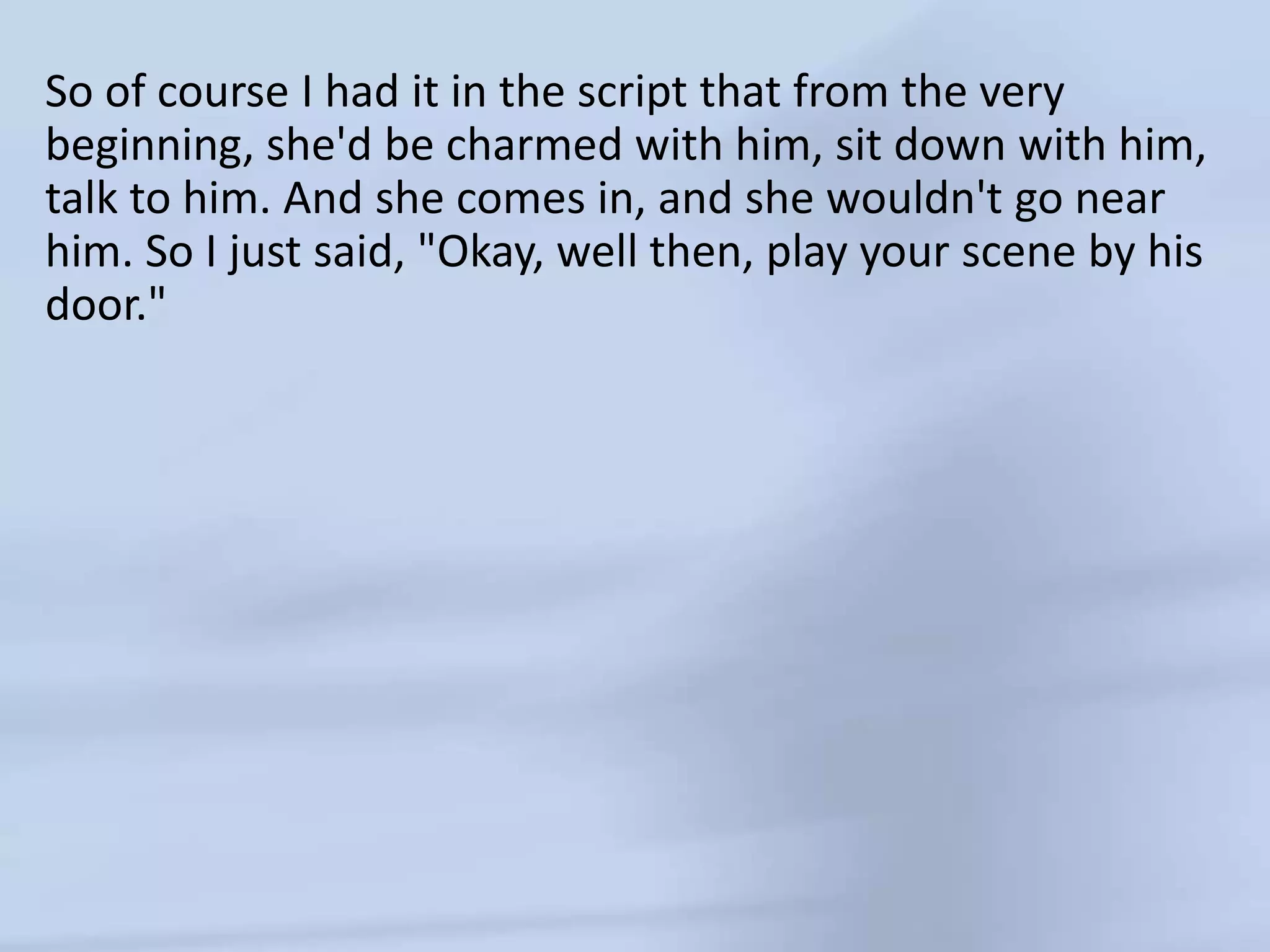
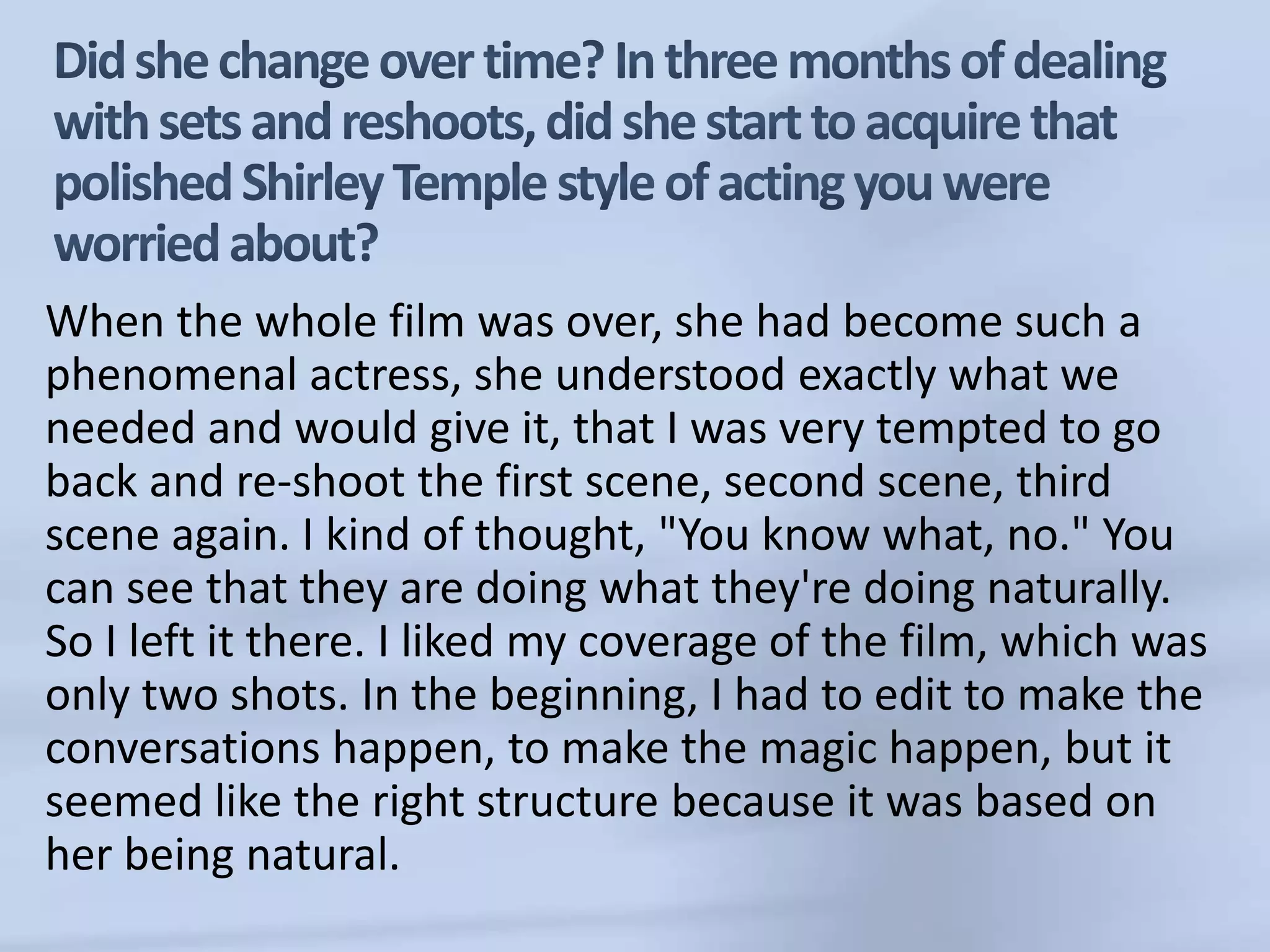
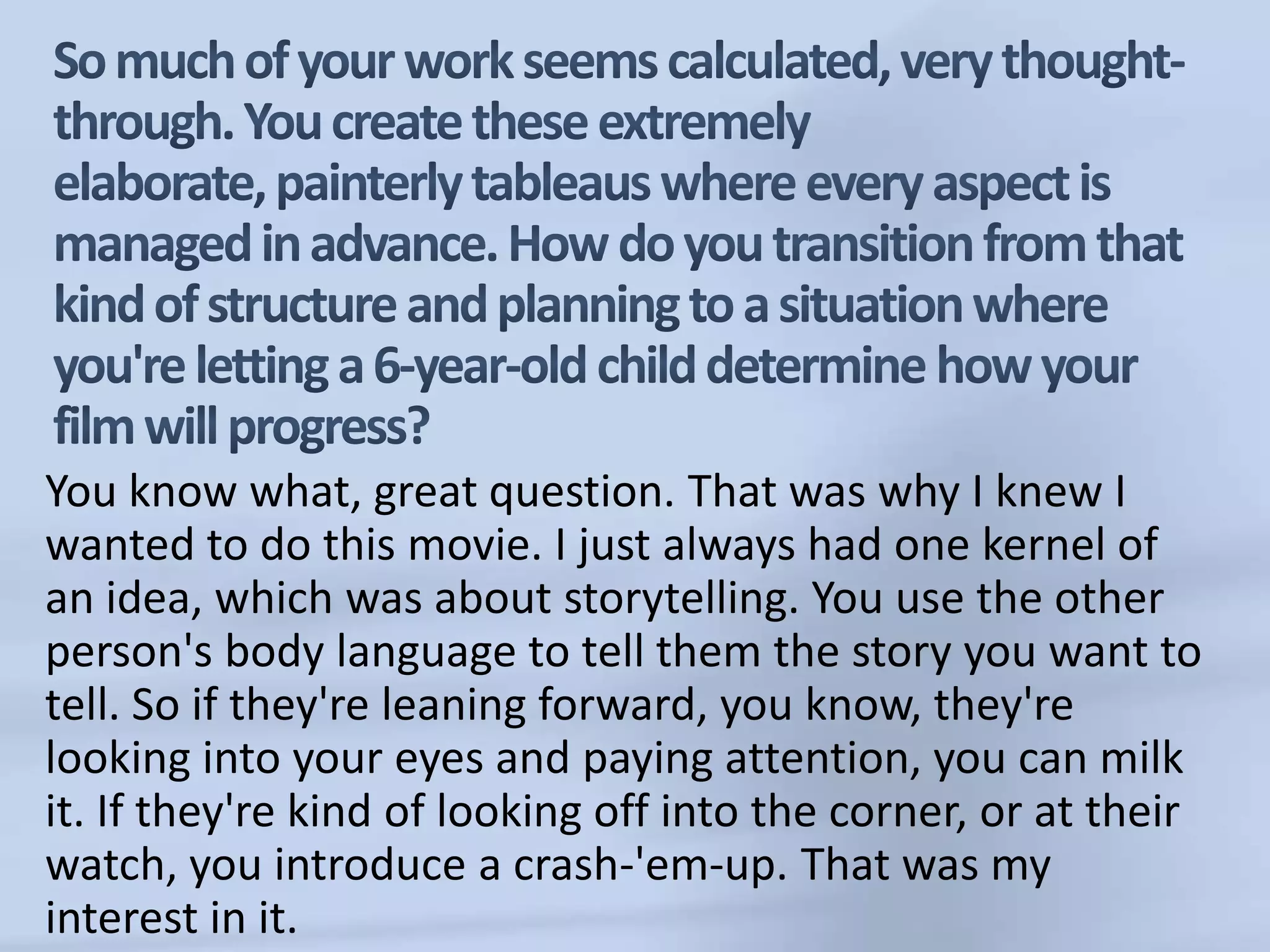
![So when I wanted to make a film in the style of Ponette, knew I couldn't tell the star what to do too much. So I said that to the actors, the moment I met them on the set. I just said, "Here, I am your puppet. I will create the best atmosphere for you, and you tell me if anything is intrusive. You'll never get a situation like this, except when—" What [David] Fincher calls very lazy filmmaking, and I agree, is when you just put lights out there, go telephoto, shoot 10 cameras, throw it together—actors love that, 'cause they can be natural from far away. I had unfortunately chosen a style in which the camera was in your face. It was very YasujiroOzu, it was very static. I just said, "Nothing should move. Nothing should come and save me. If the situation's not working, I want to be screwed."](https://image.slidesharecdn.com/thefall-110503092256-phpapp01/75/The-fall-21-2048.jpg)
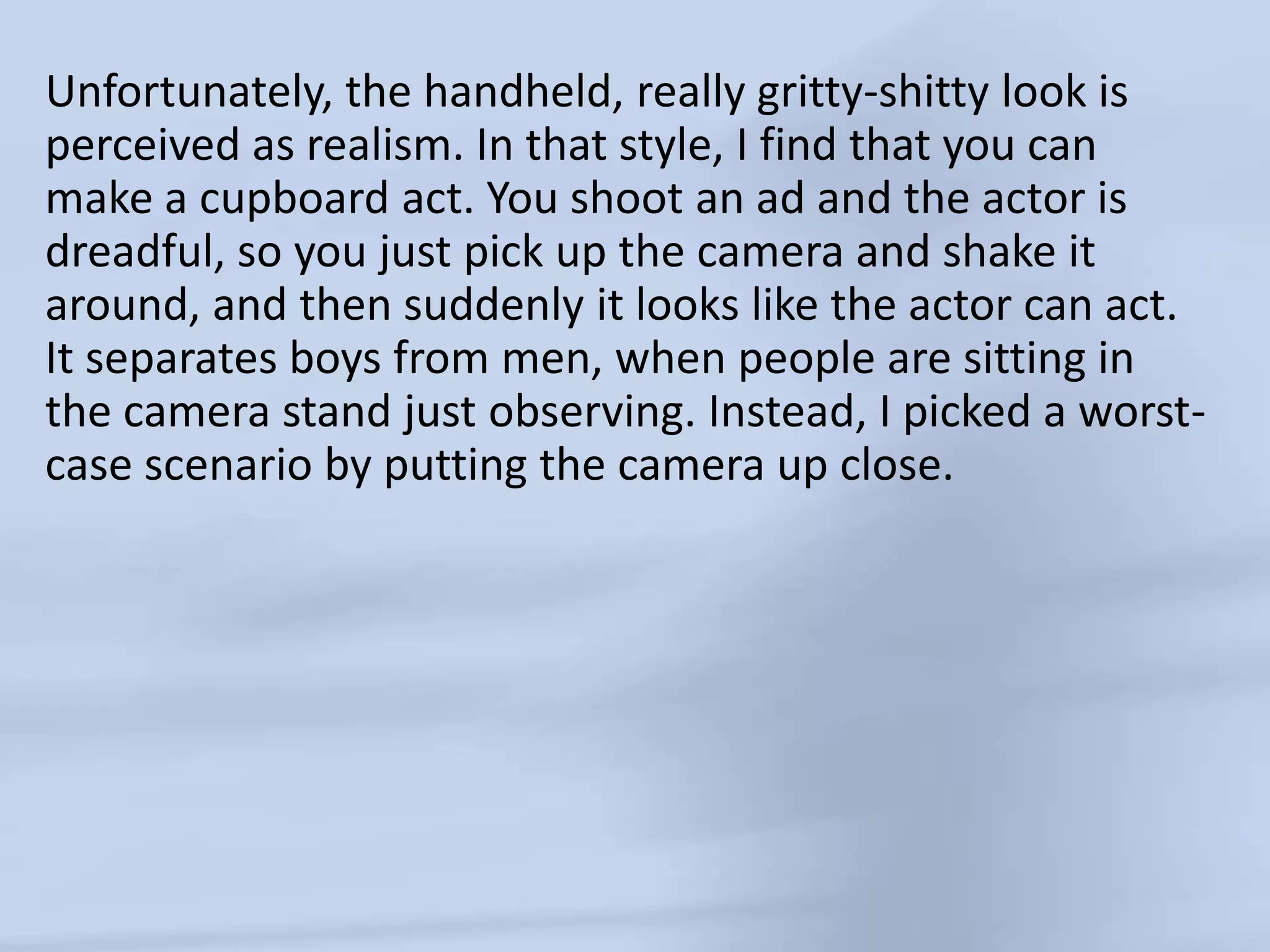
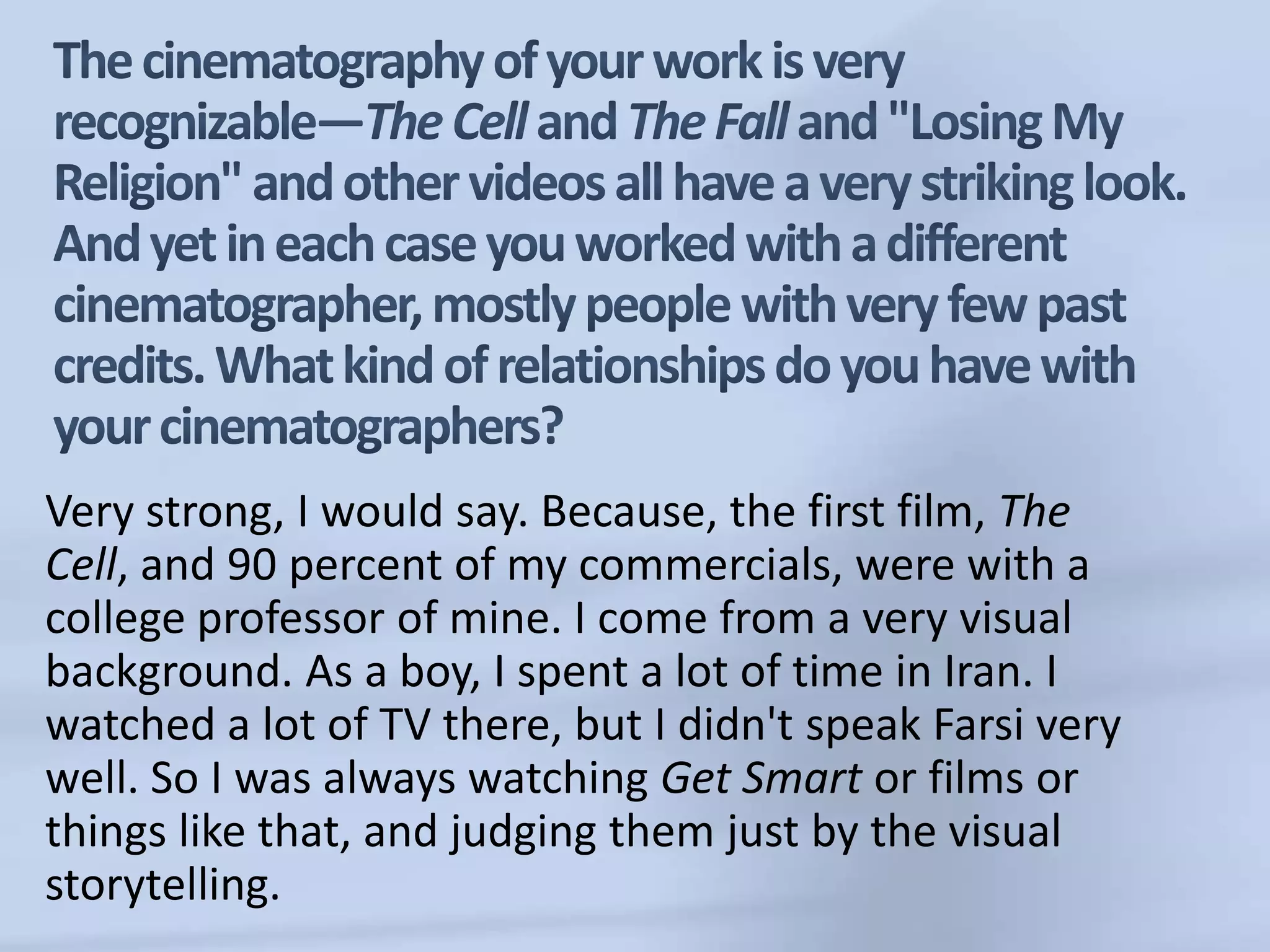
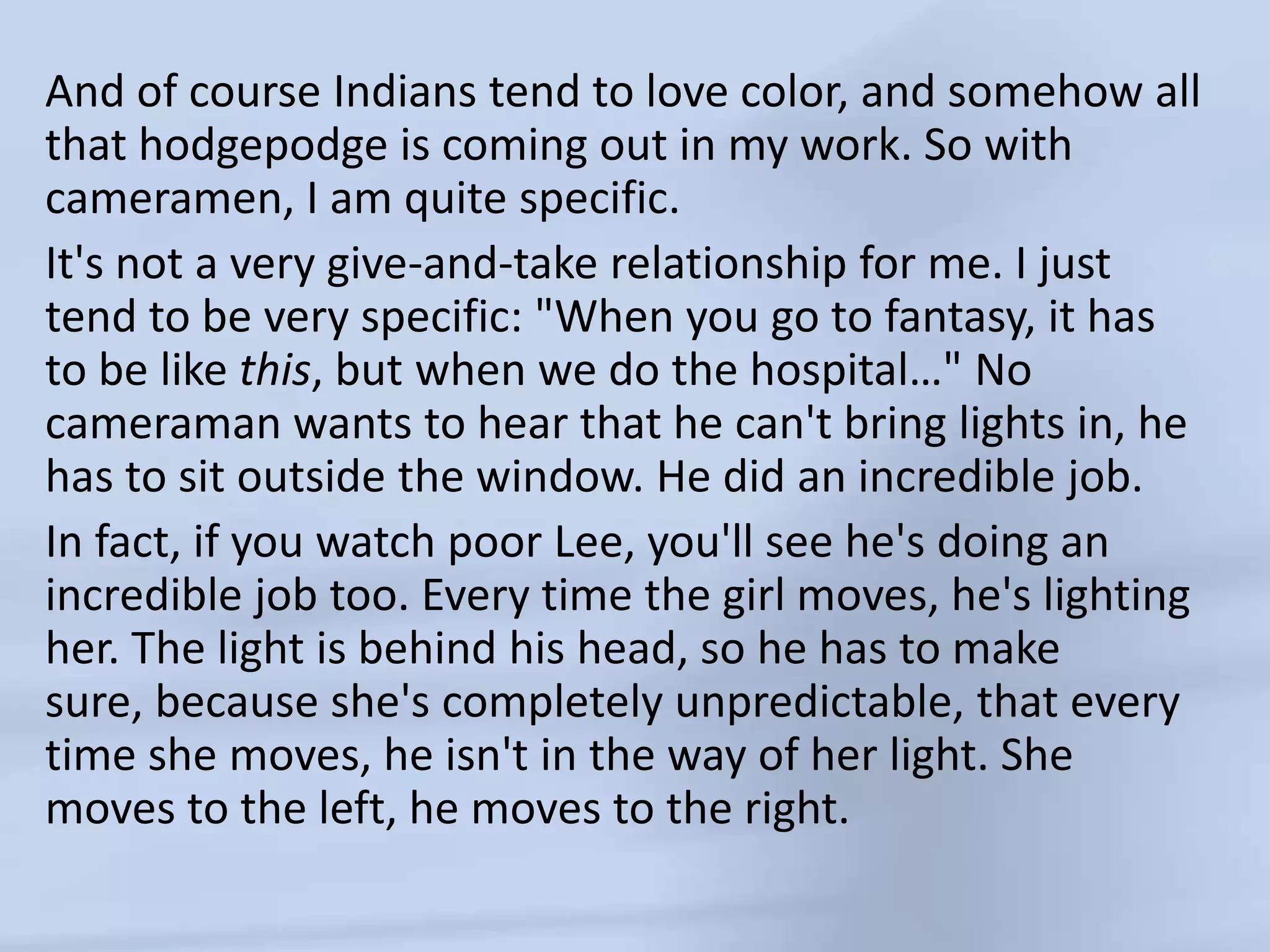
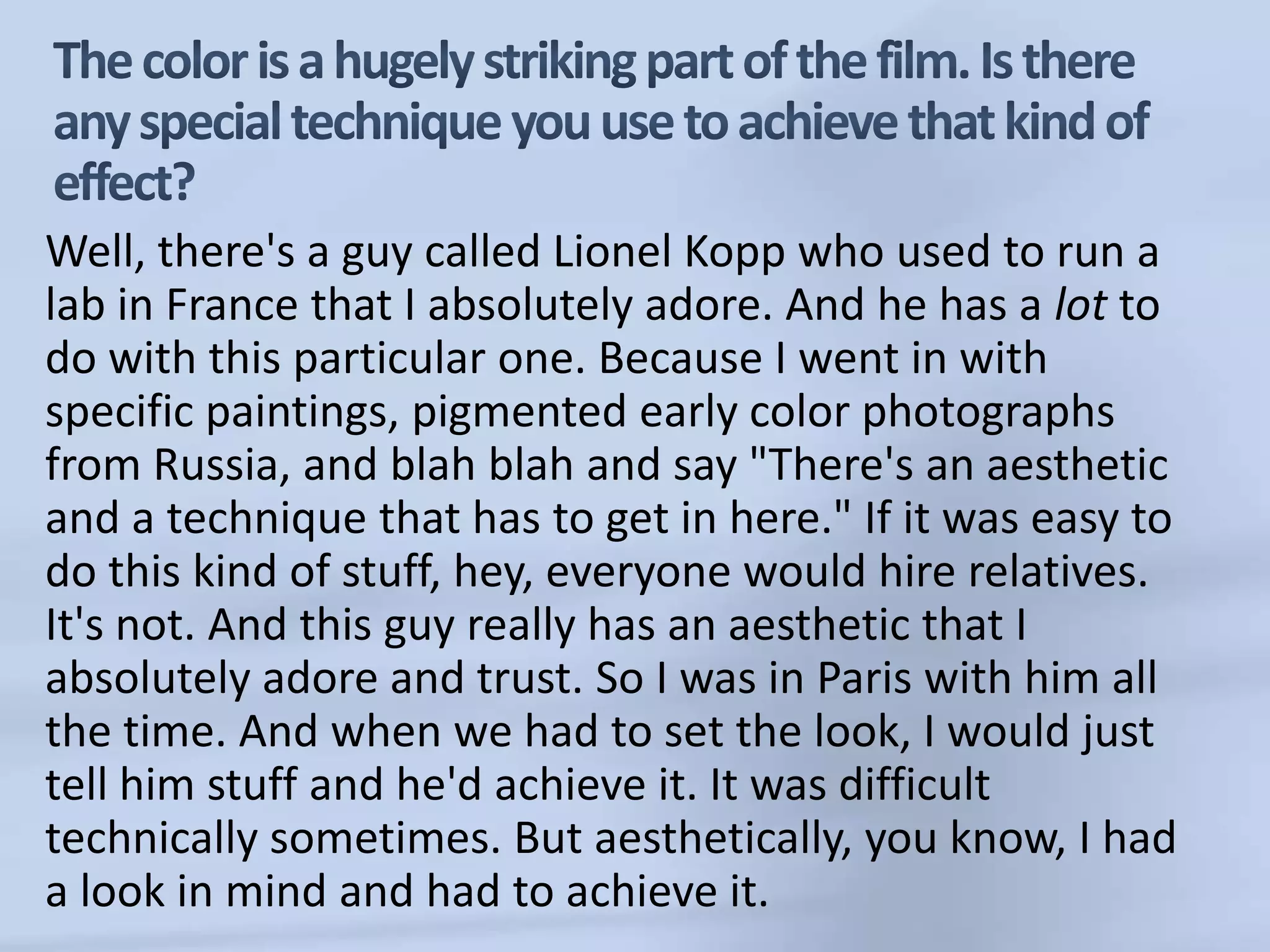
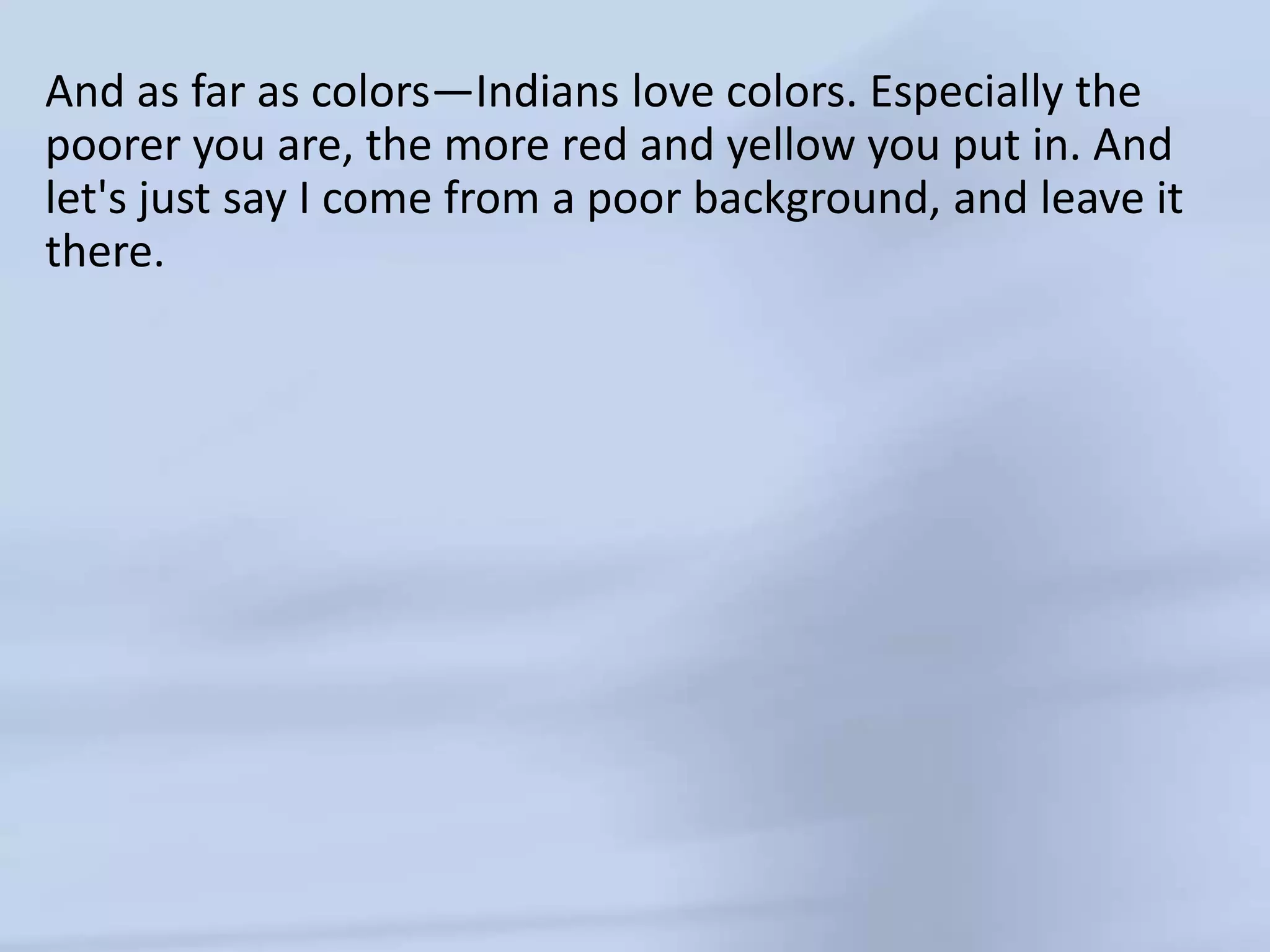
![So what's next? How do you follow up a film like this?I keep saying, probably something like My Dinner With Andre, something small. I don't know. [Laughs.] I don't plan—I never intended to do The Cell before this one, it just came together so quickly. Since it wasn't about locations, since The Fall is so location-specific, and The Cell was all on-set, I said, "Oh, they'll be different enough. Let's do it." Plus, it's a serial-killer pop movie, it's a completely pop thing, I'll go for it. So I just did it. And now, suddenly—two works do not a movement make, I hope. People can't see my body of commercial work—all they see is "Losing My Religion," the other pop thing that was big, and think that's my whole style. I've been saying for a long time, "No, no, I don't think I want to go there." I love big crash-and-burn Hollywood films. I just want to make sure my stamp is on them.](https://image.slidesharecdn.com/thefall-110503092256-phpapp01/75/The-fall-27-2048.jpg)
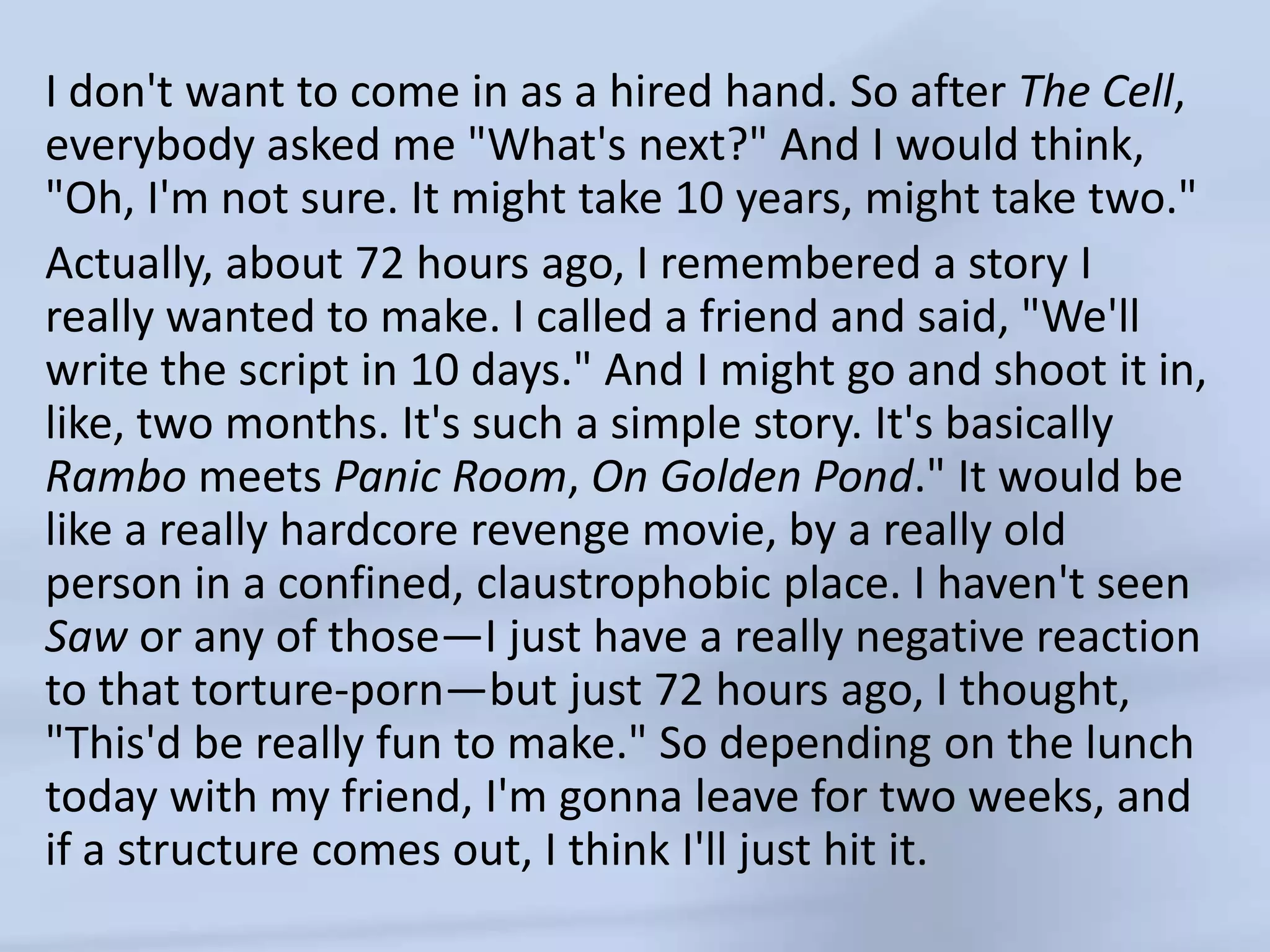
![It seemed like viewers and critics all hated the plot and loved the visuals.At the turn of the century, a studio would make any film that had a serial killer in it. I just said, "Okay, so that's the nutshell I need to put it in? It's fine." In the '70s, everybody was making disaster movies. If I'd made The Cell in the '70s, it would have been about a burning building, with a guy having a dream on the 14th floor. I'd make it because of the dream, the studio would make it because of the building burning. Same thing here—I looked at the script, said "Oh, serial-killer thing—I don't give anything about that. Okay. Put that on the side. And inside his head… wow, clean palette." Because it was written, initially, with stuff in his head with zombies coming out, saying, [Adopts zombie voice.] "Have you seen my son?" That kind of stuff.](https://image.slidesharecdn.com/thefall-110503092256-phpapp01/75/The-fall-29-2048.jpg)
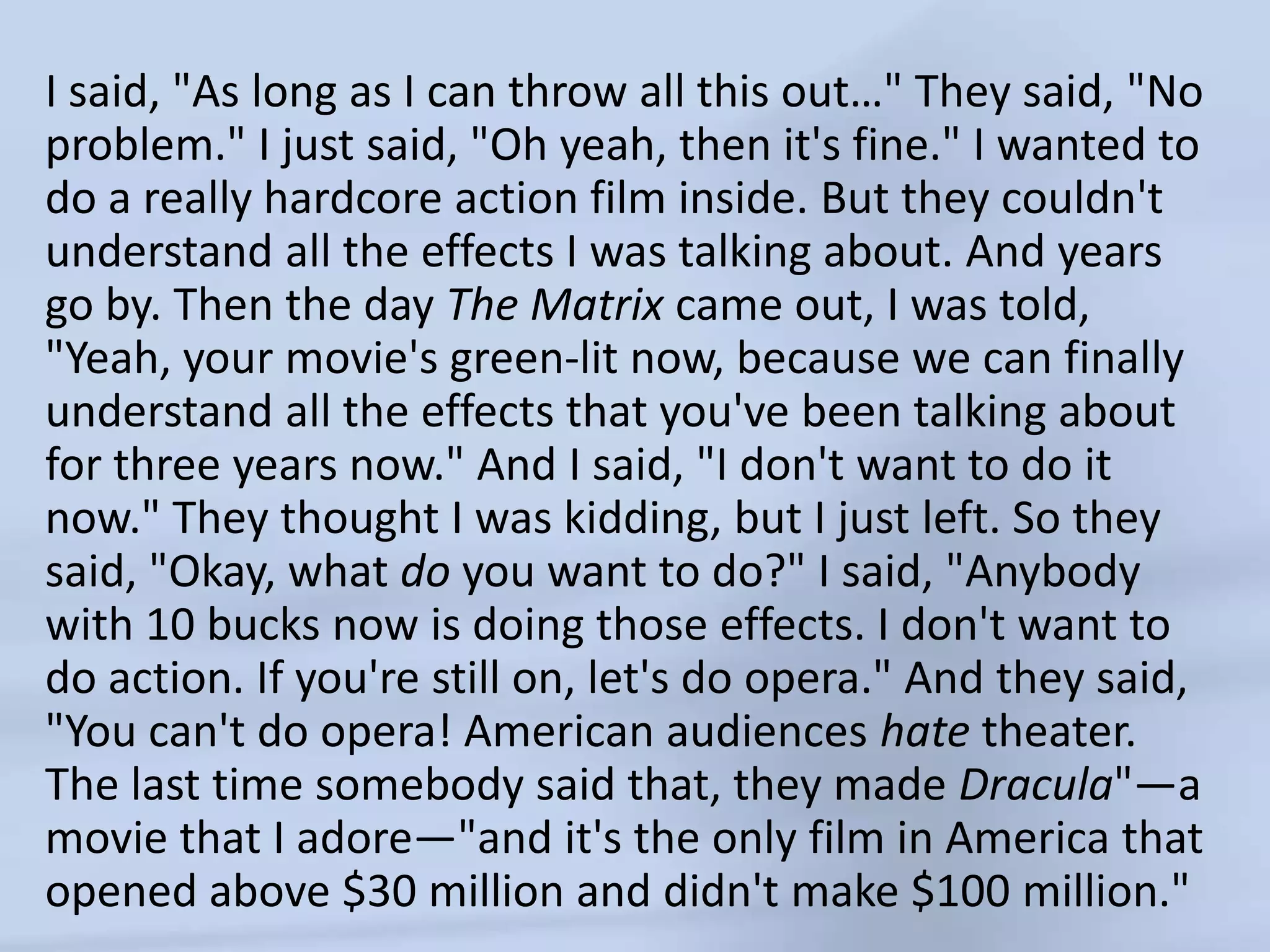
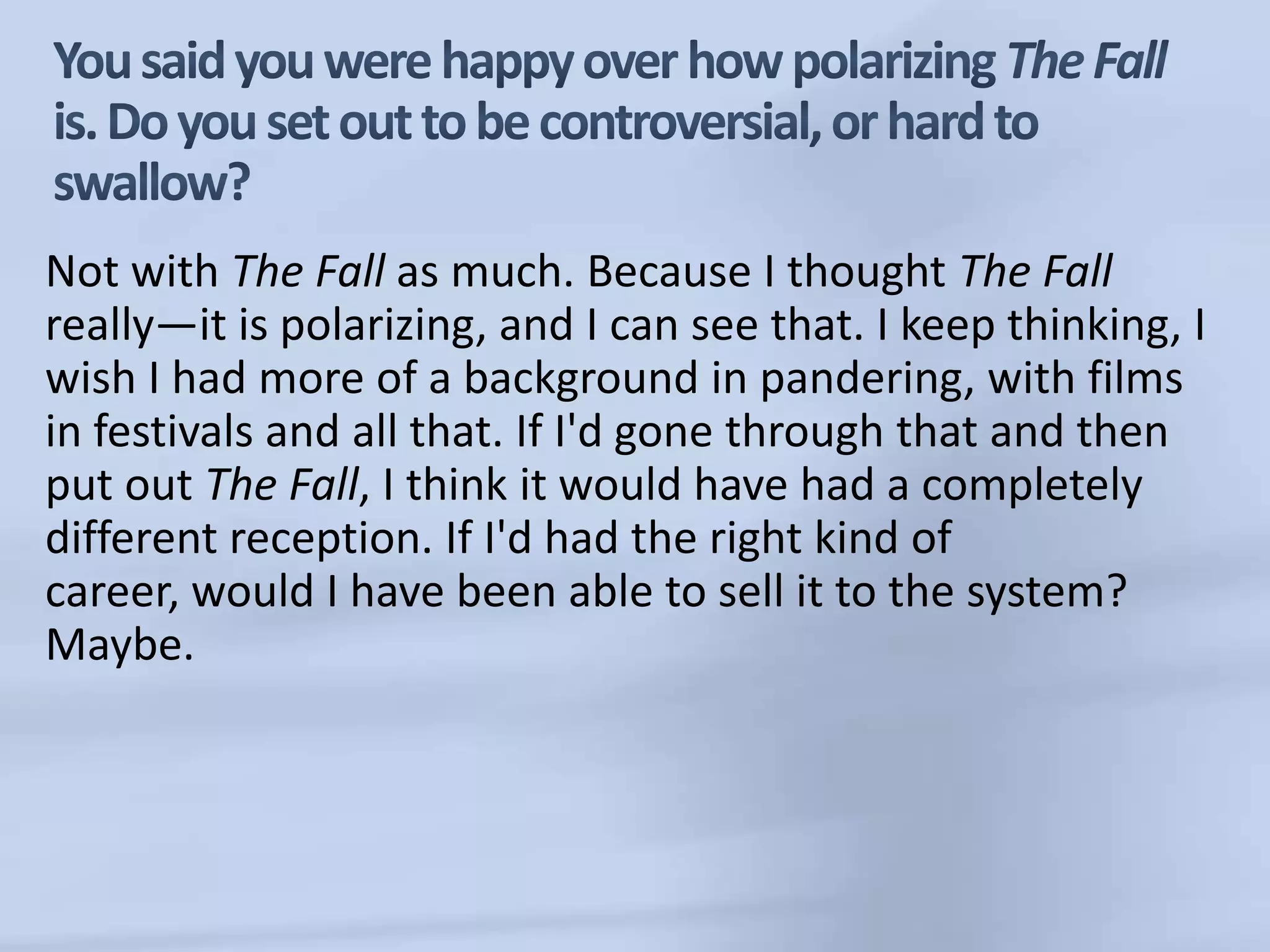
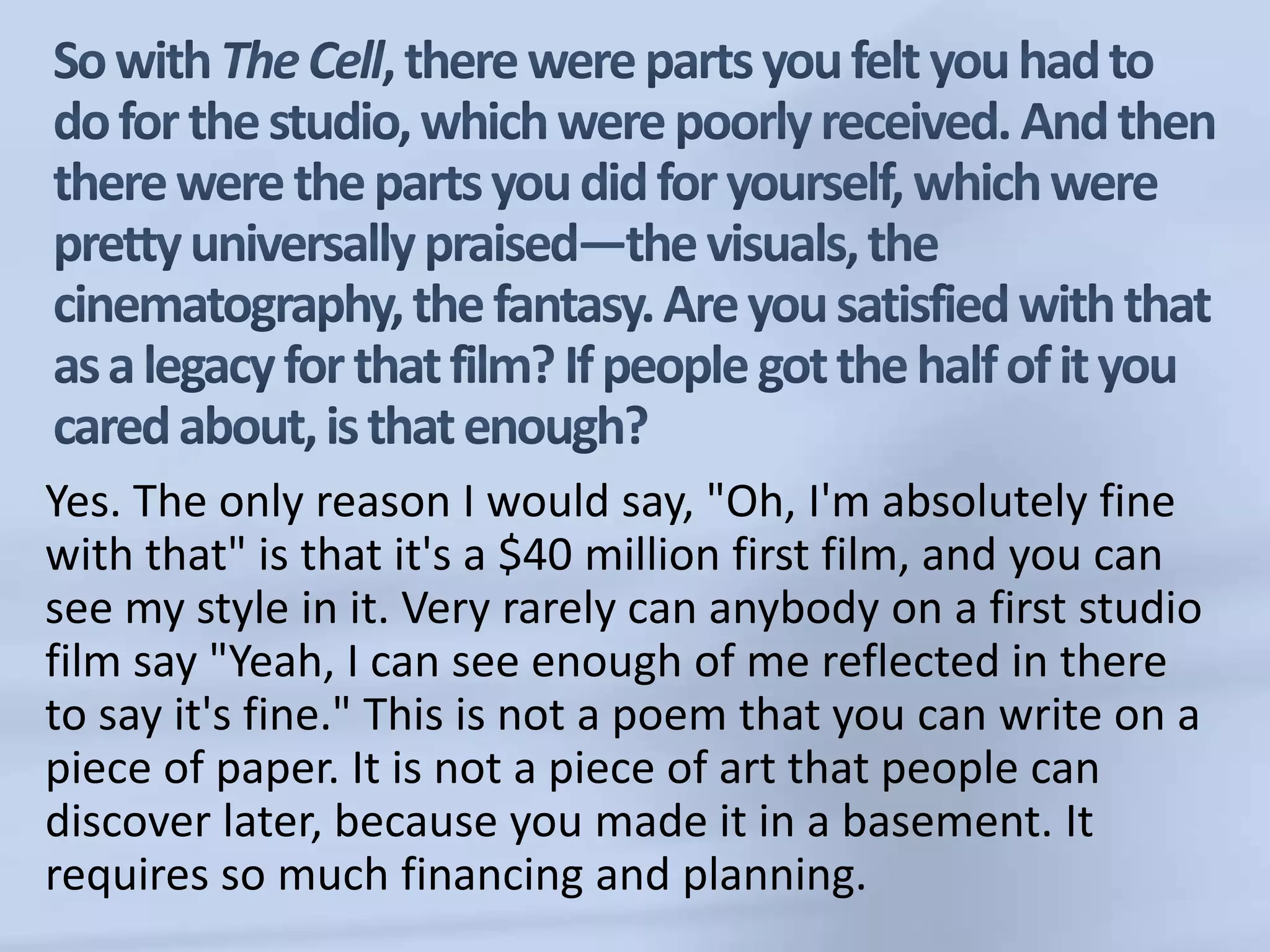
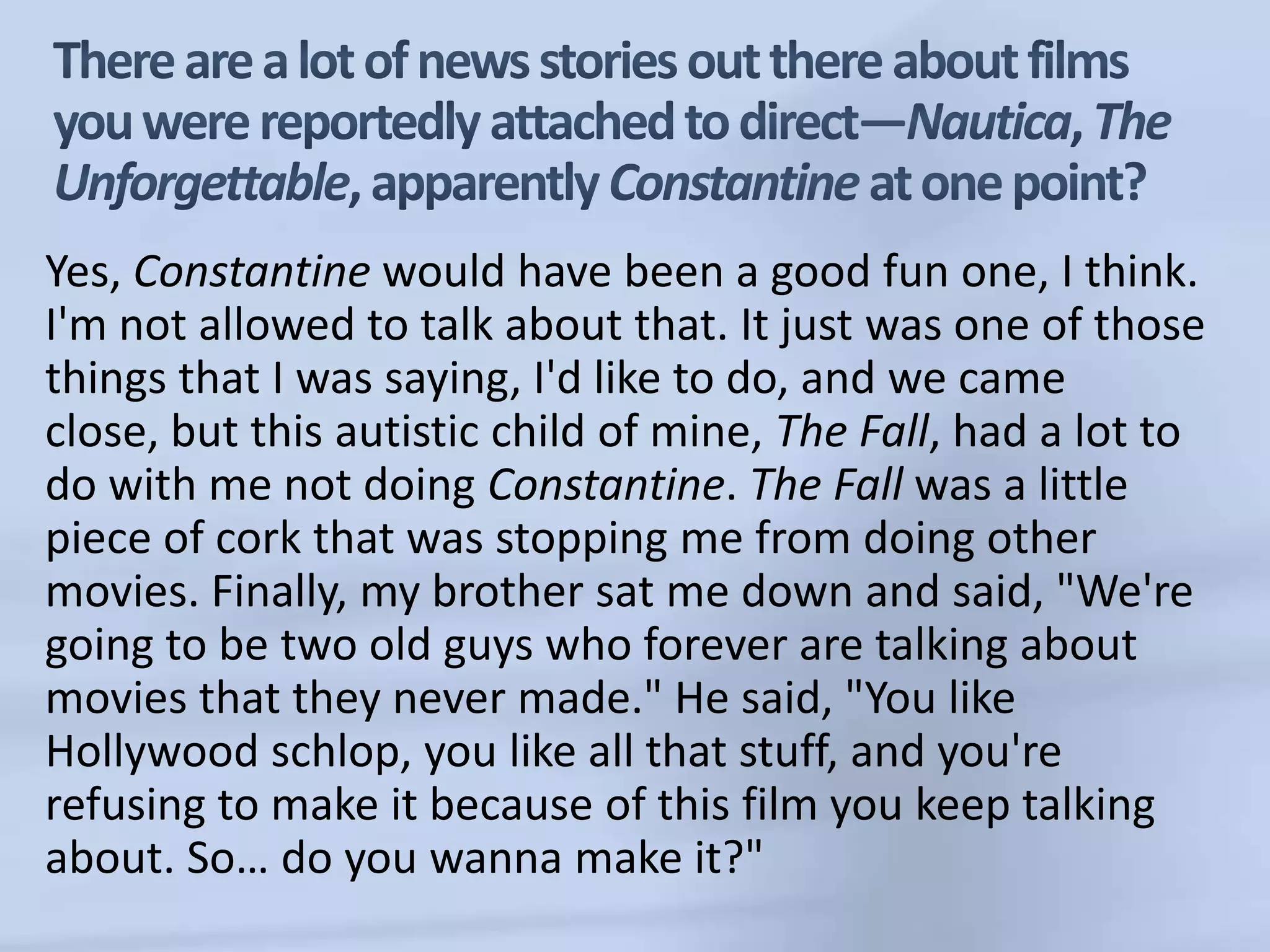
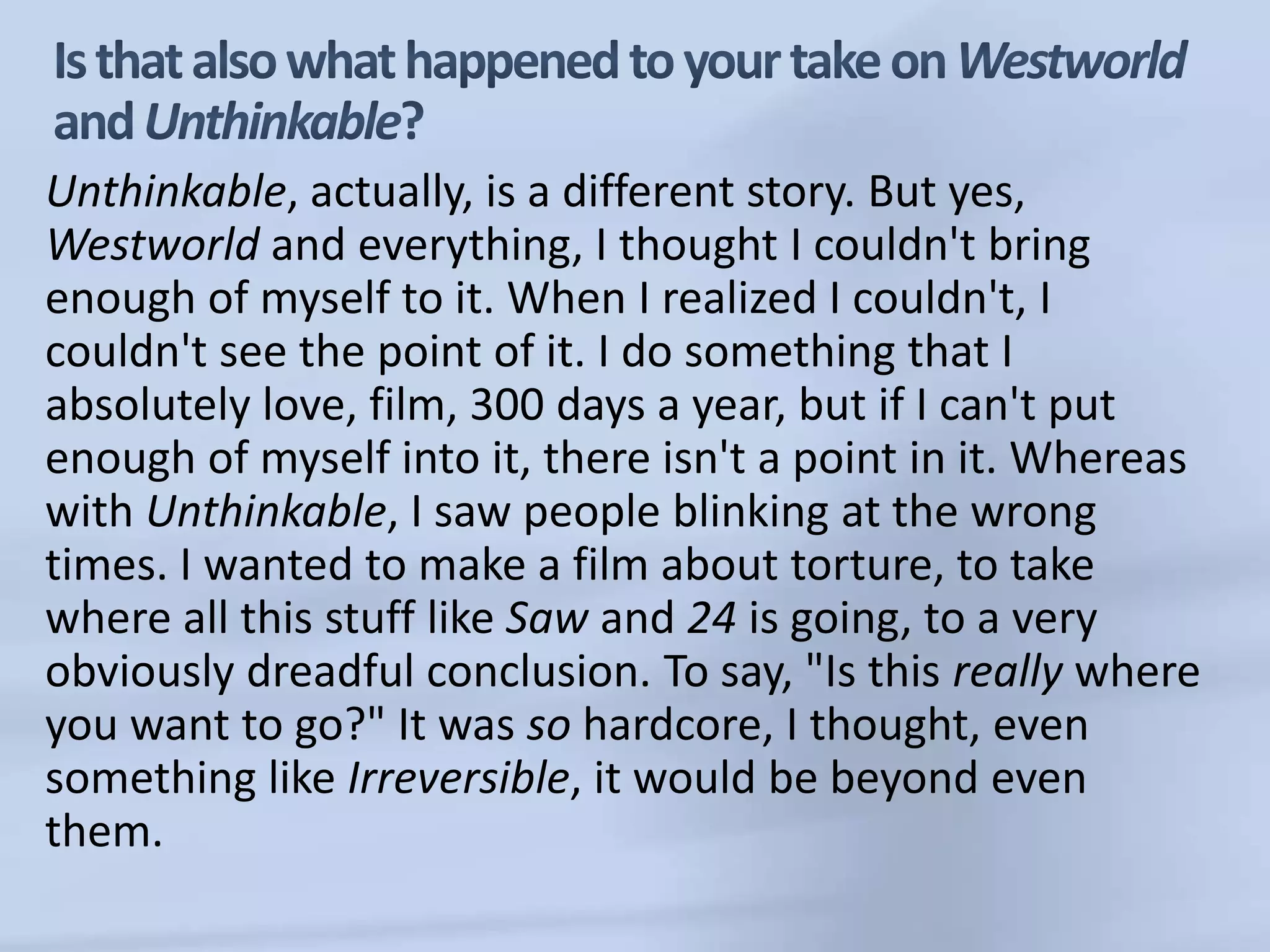

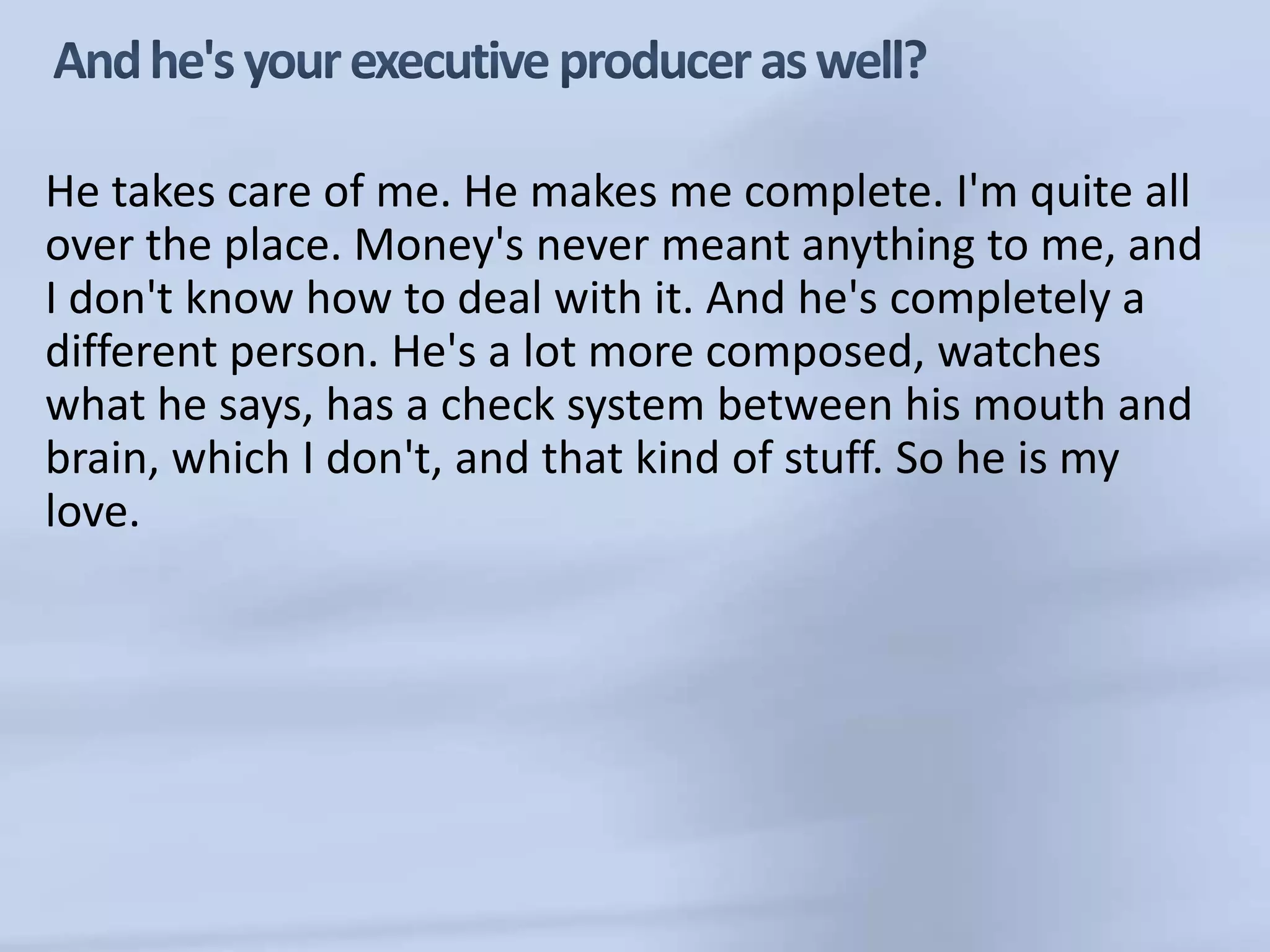
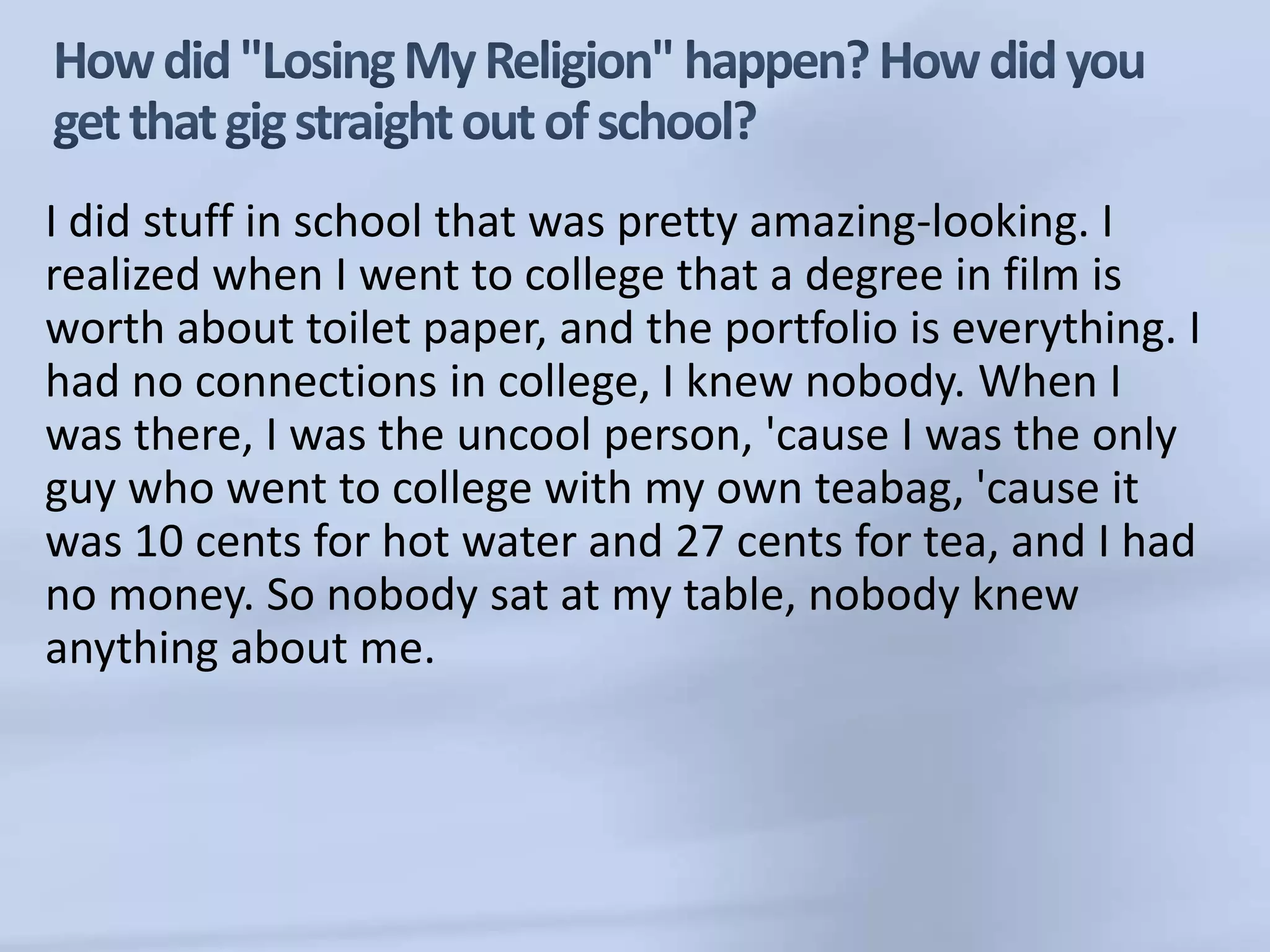
![You're prouder of the ads you shot in film school than of The Fall?They were completely, like, really aggressively, unadulterated student ambition. [Laughs.] The record label saw them and said "Will you do our video?" And I just said—I'm one of those people who says it out loud on purpose, just to make a reaction—"I hate rock 'n' roll!" Because for me, the problem was, when I came to America, I had come from Pink Floyd, Led Zeppelin kind of stuff, which we loved it in India. And when I came out here, suddenly the only stuff MTV was promoting was Winger and DefLeppard kind of stuff. I couldn't relate to it. And then they sent me this song, and I just went, "Oh! I really love this song. I would love to do something with it." And they said, "Well, can you write a treatment?" I said, "No, that's not me.](https://image.slidesharecdn.com/thefall-110503092256-phpapp01/75/The-fall-38-2048.jpg)
![How does that compare to other musicians you've worked with? Like your Suzanne Vega video? That one, I did when I was still in college. When I was in college, someone saw rough cuts of my stuff and asked me if I would do the video. And I said "Great." That video is in honor of a photographer called [Josef] Koudelka that I really loved. I wanted to see where he had done his photographs—he's out of the Czech Republic, which was just opening up at that time. I said, "This is what I'd like to do," and they said, "Go ahead." The videos I've done, the musicians haven't had anything to do with the video, just like I've had nothing to do with the music. Their music spoke to me, and I thought, "The visuals need to come from me. These are completely, dreadfully two different mediums."](https://image.slidesharecdn.com/thefall-110503092256-phpapp01/75/The-fall-39-2048.jpg)
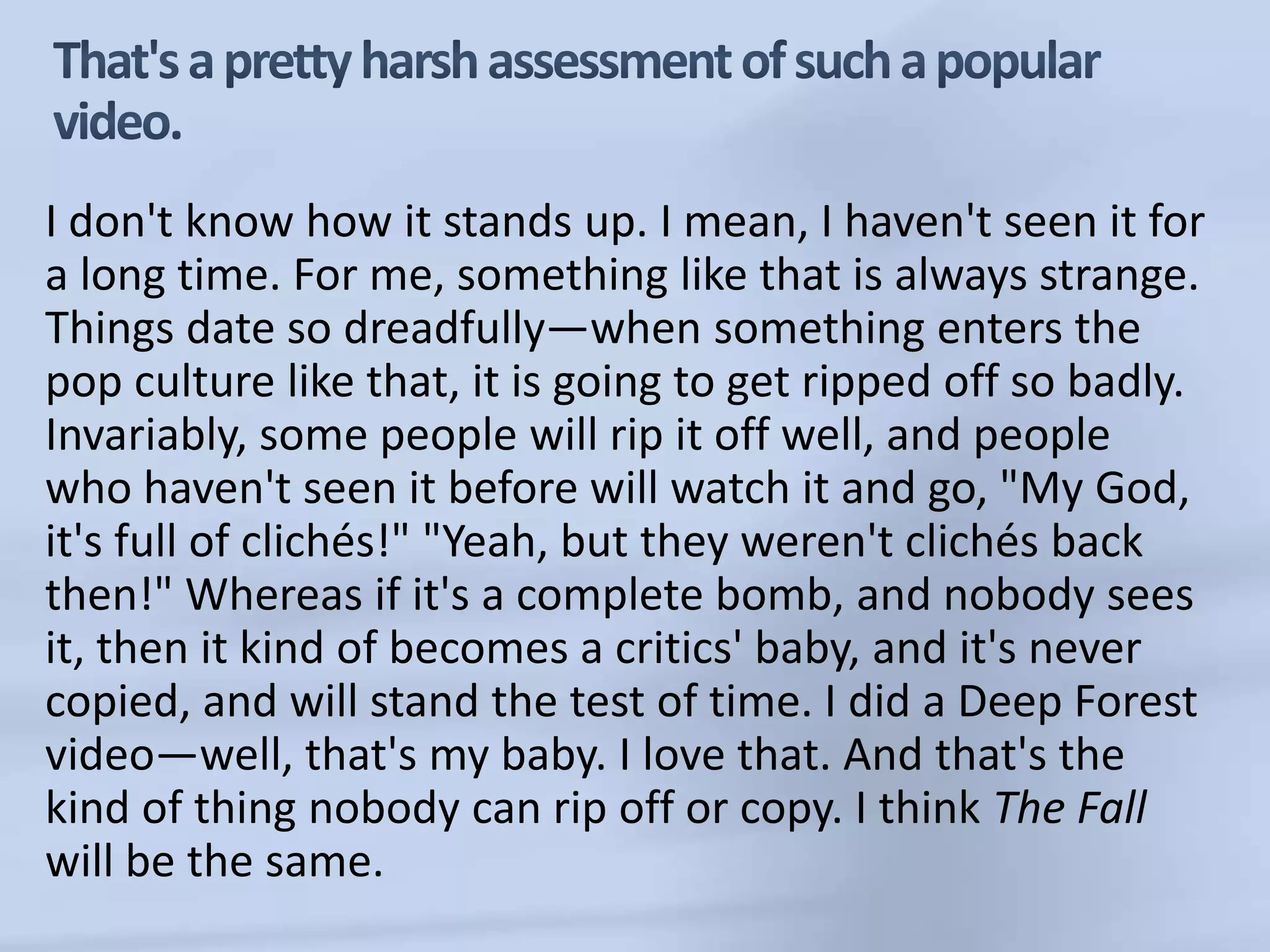
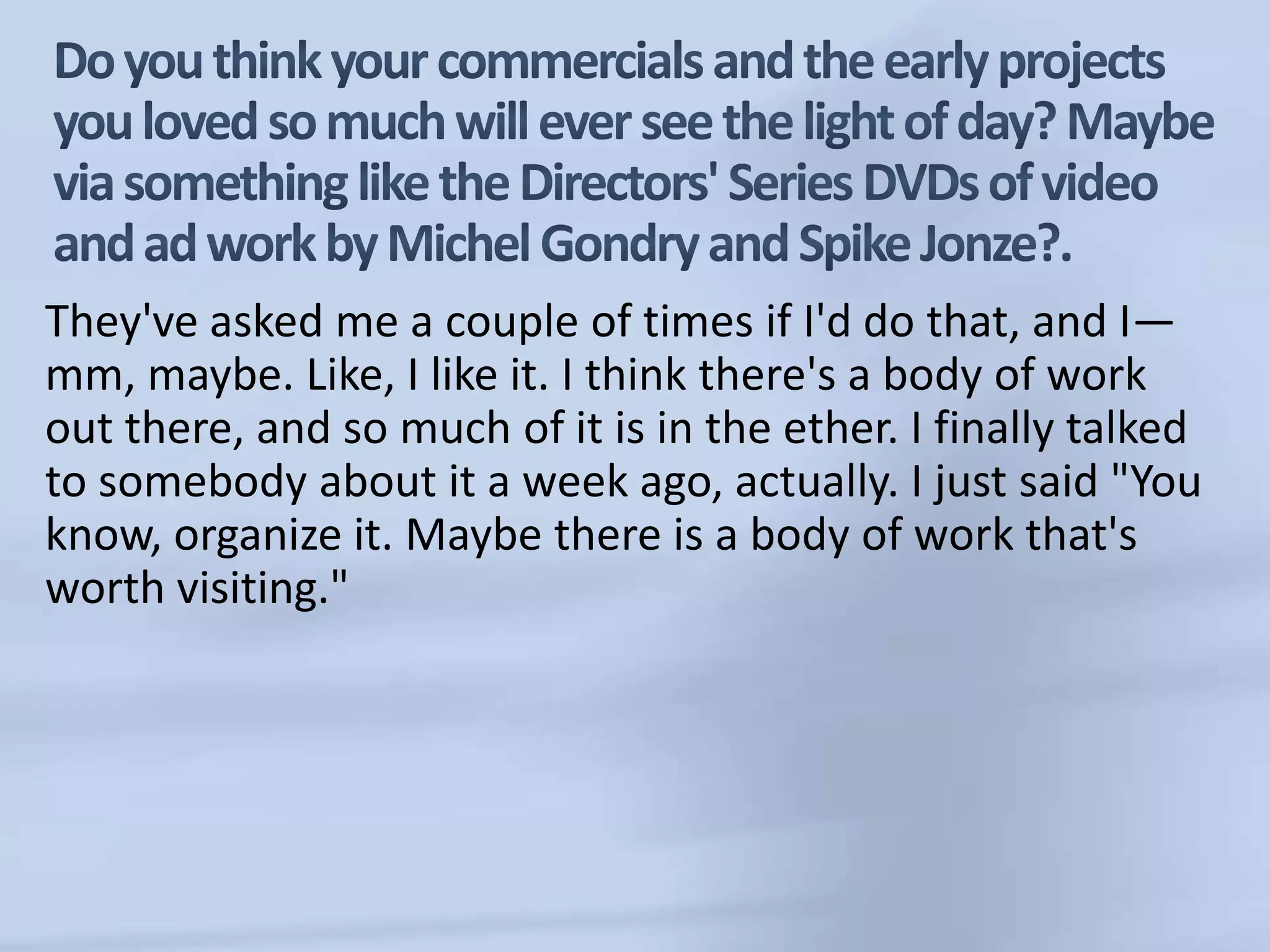
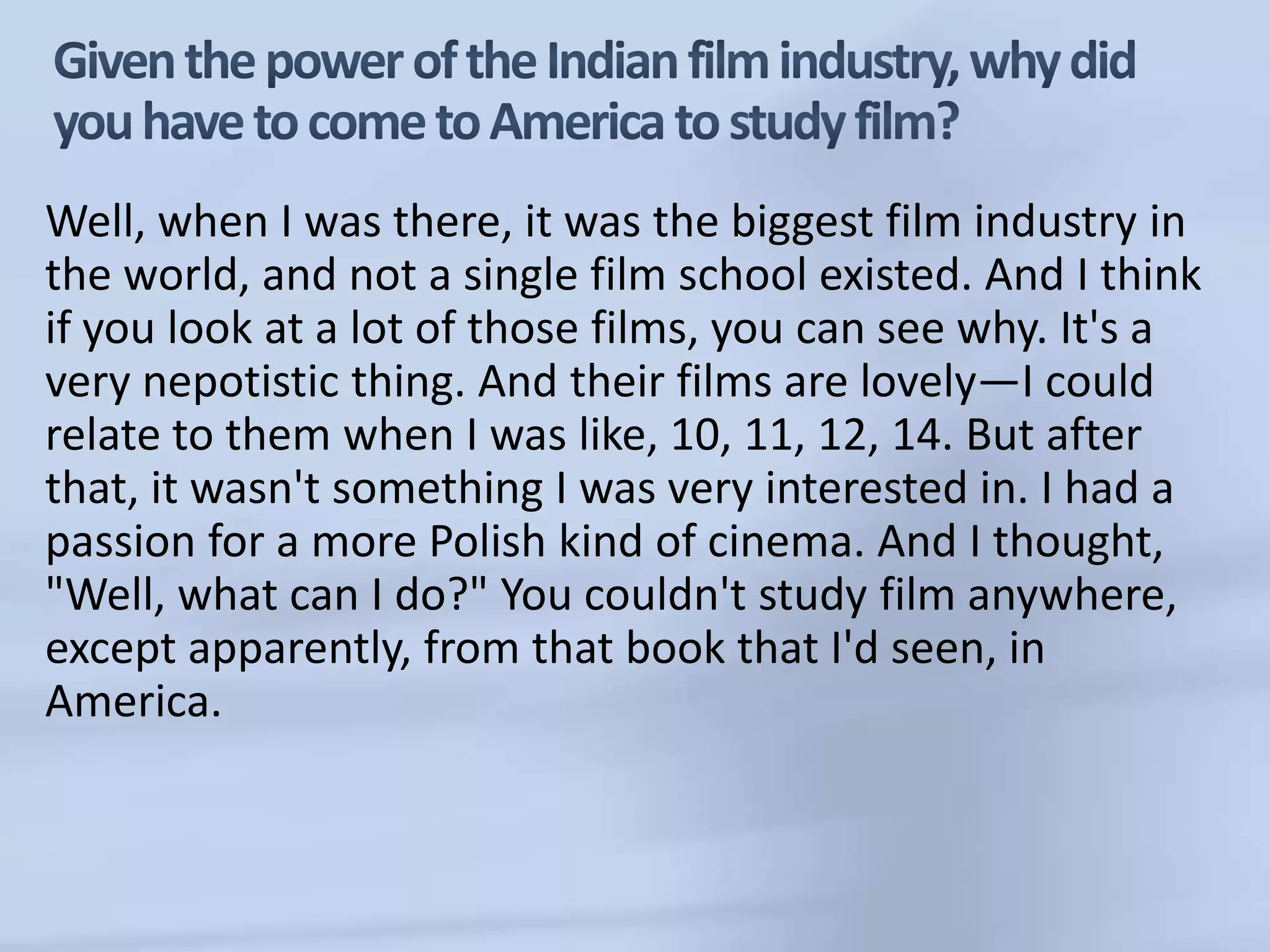
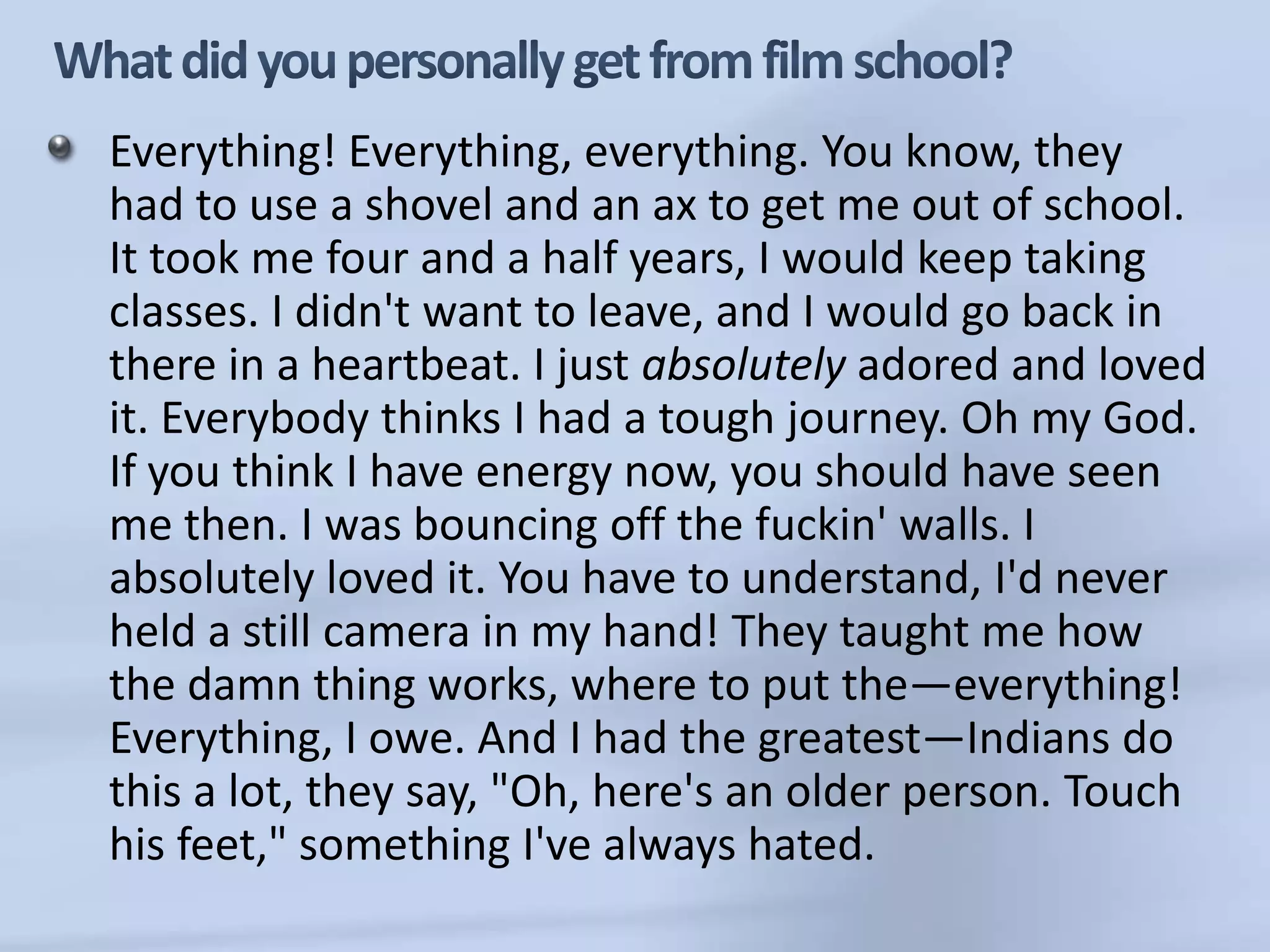
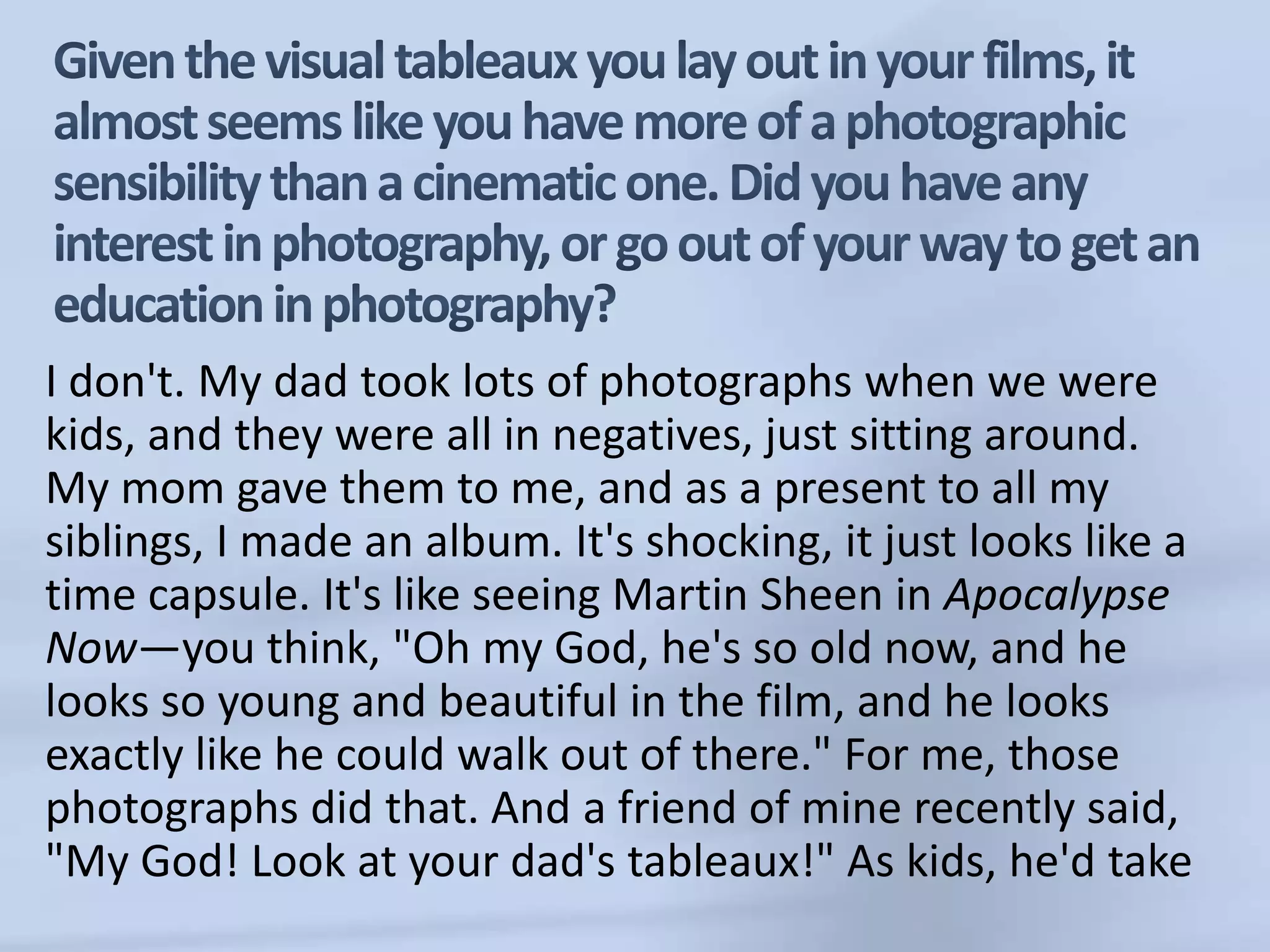
![us places and lineus up height-wise, or have us make a pyramid. We'd be like, "Why doesn't dad do pictures like normal people, just throwaway, people-having-fun photos?" [Laughs.] So I looked at those, and I thought, "My God! There is a gene for this!“But no, I didn't have any photographic background, even though one of my biggest influences was my second girlfriend in college, who was a photographer. The people in the photo department were 20 million times harder-working than the people in the film department. You know, it was just really, really thought about, what they put in front of the camera, which sometimes you have to do and sometimes you don't, when you're doing film. A lot of times, you just have to get out of the way of people doing a good performance. And sometimes you actually need to put what you are thinking, what's is in your head, in front of](https://image.slidesharecdn.com/thefall-110503092256-phpapp01/75/The-fall-45-2048.jpg)
